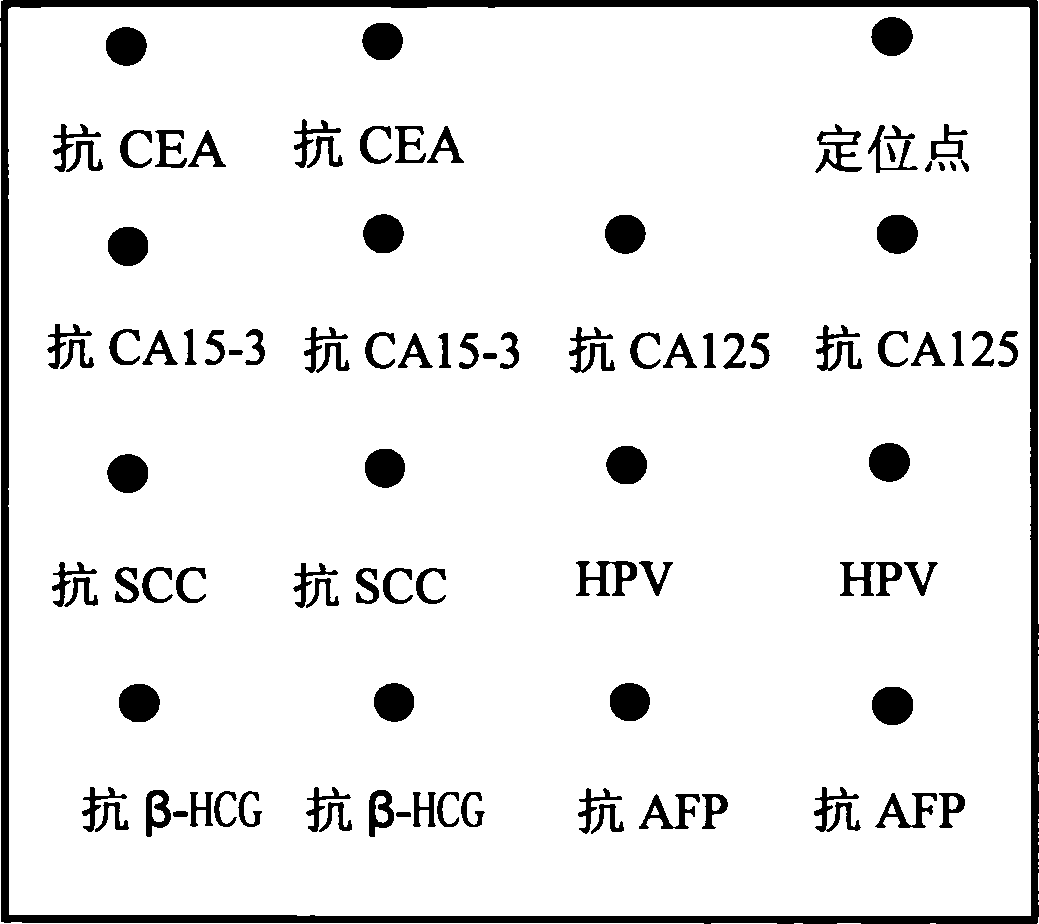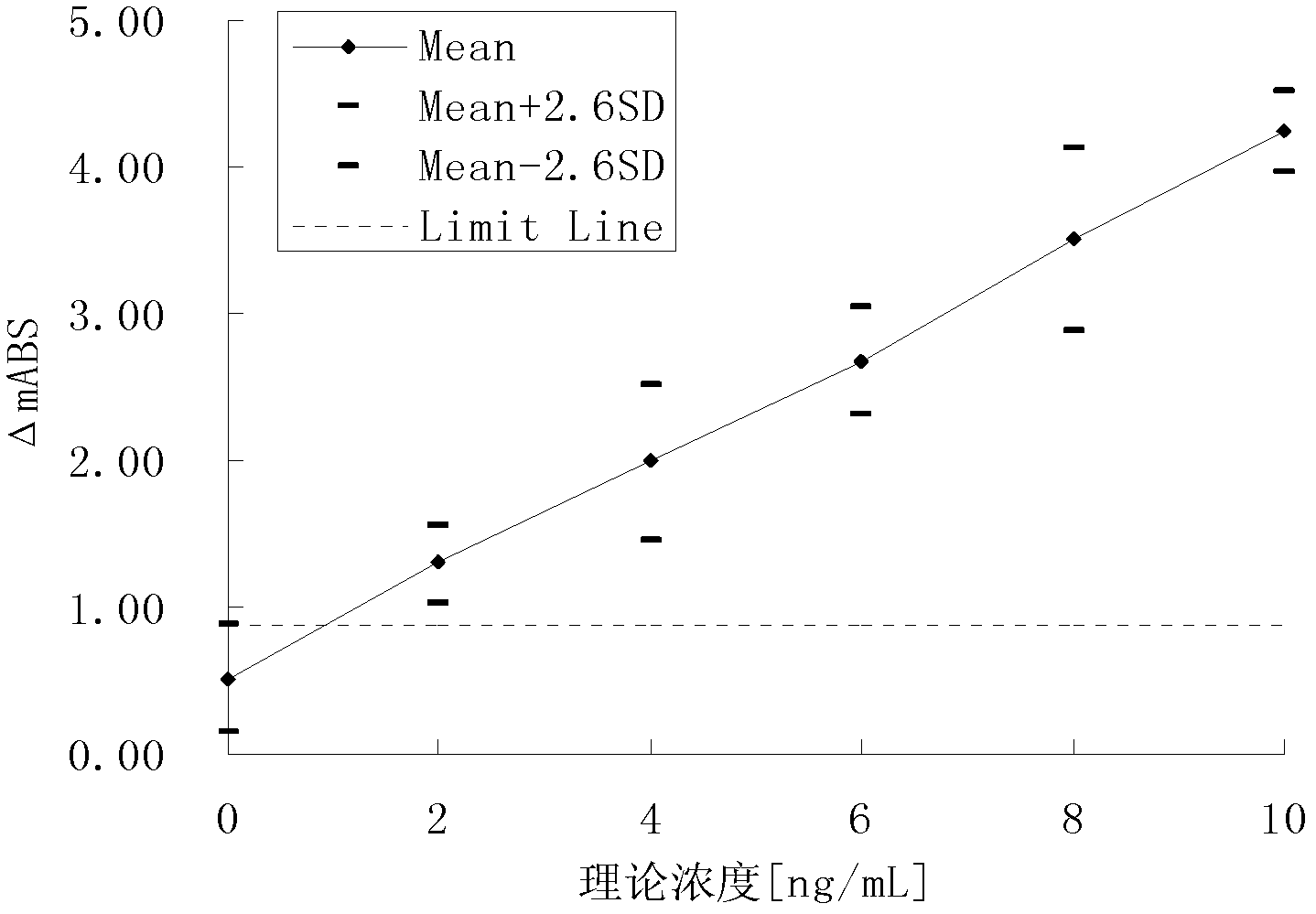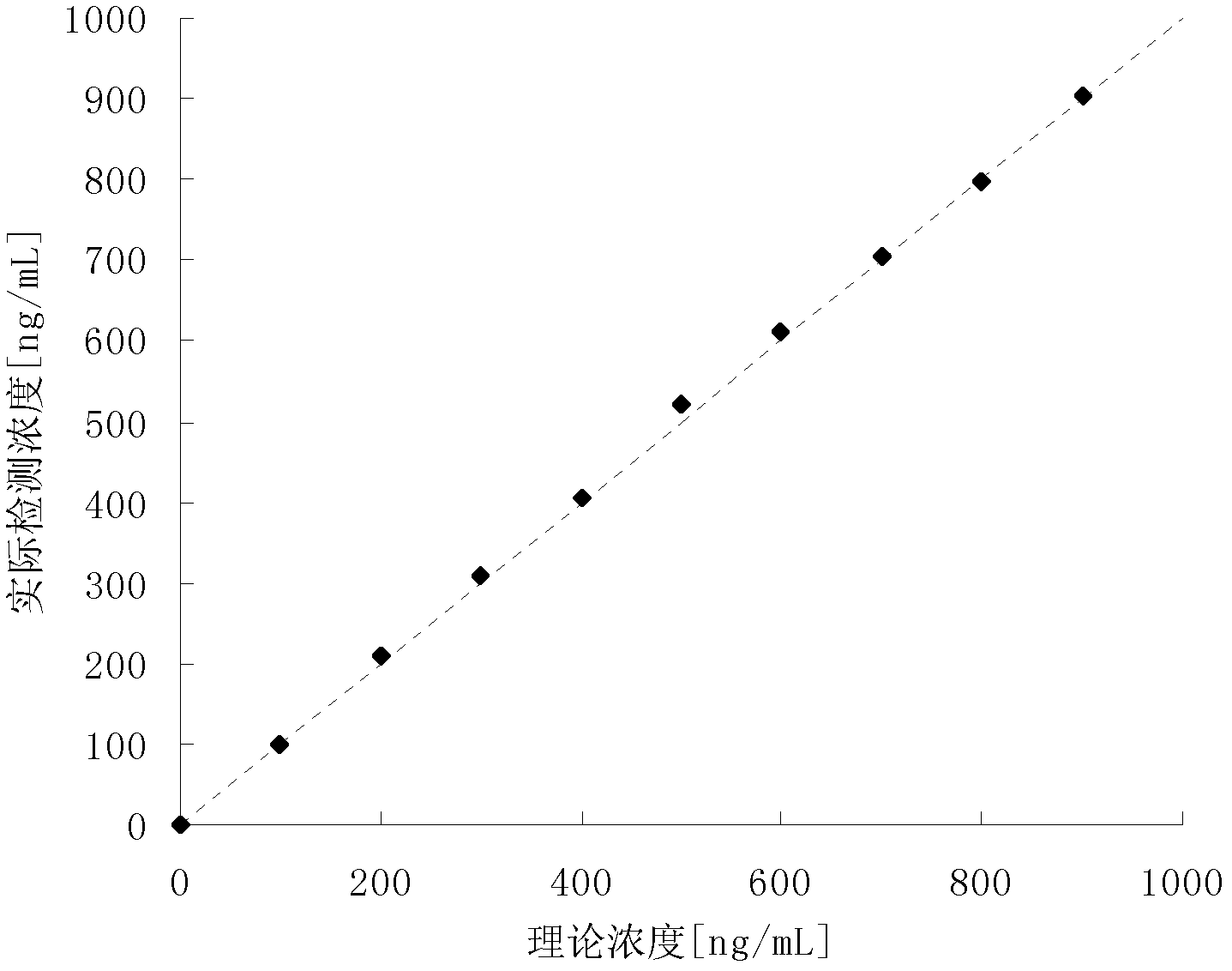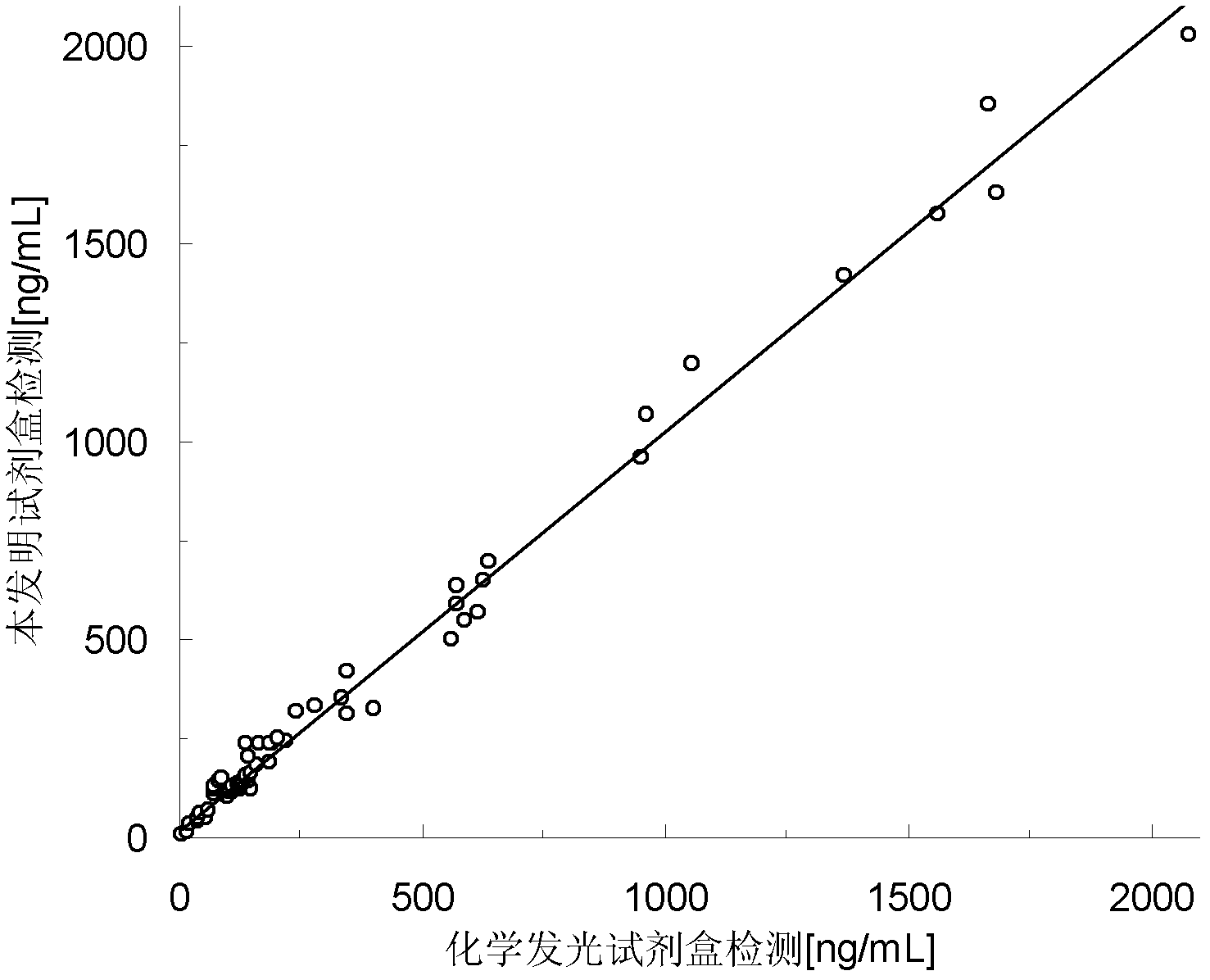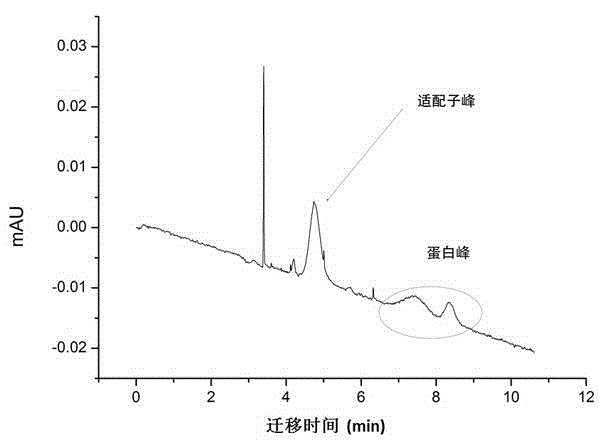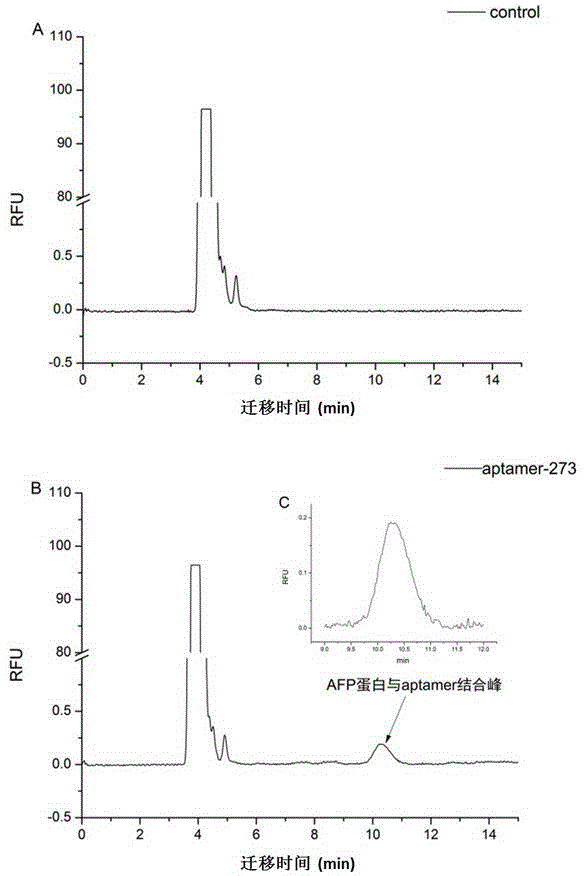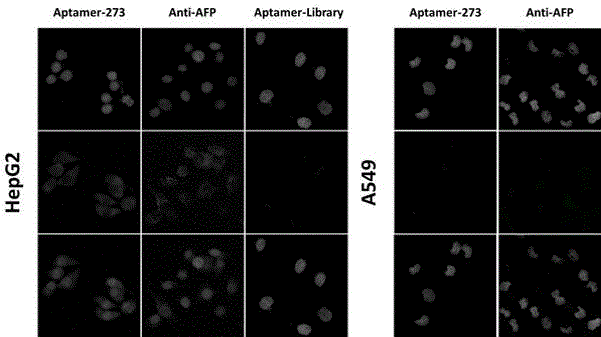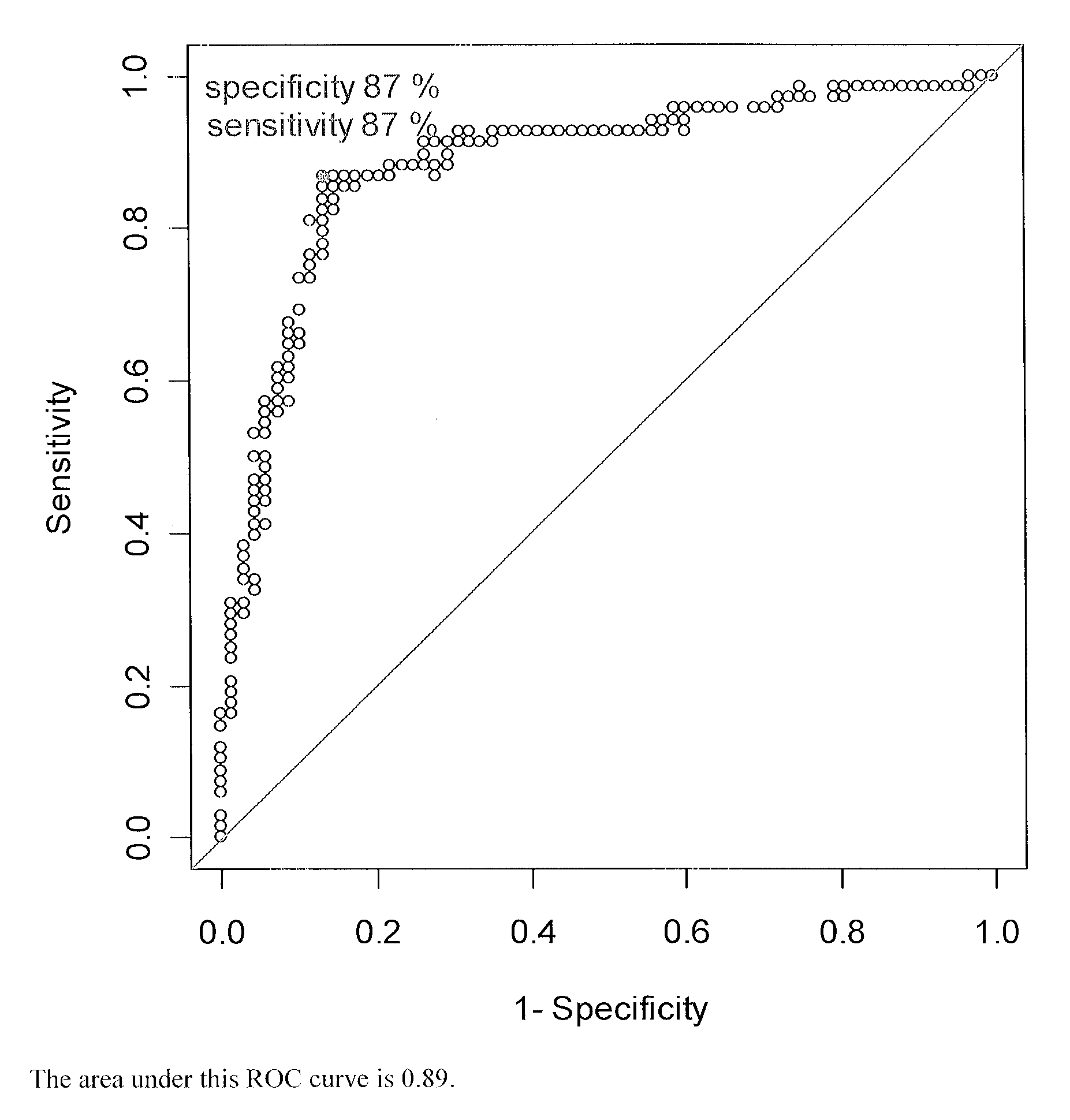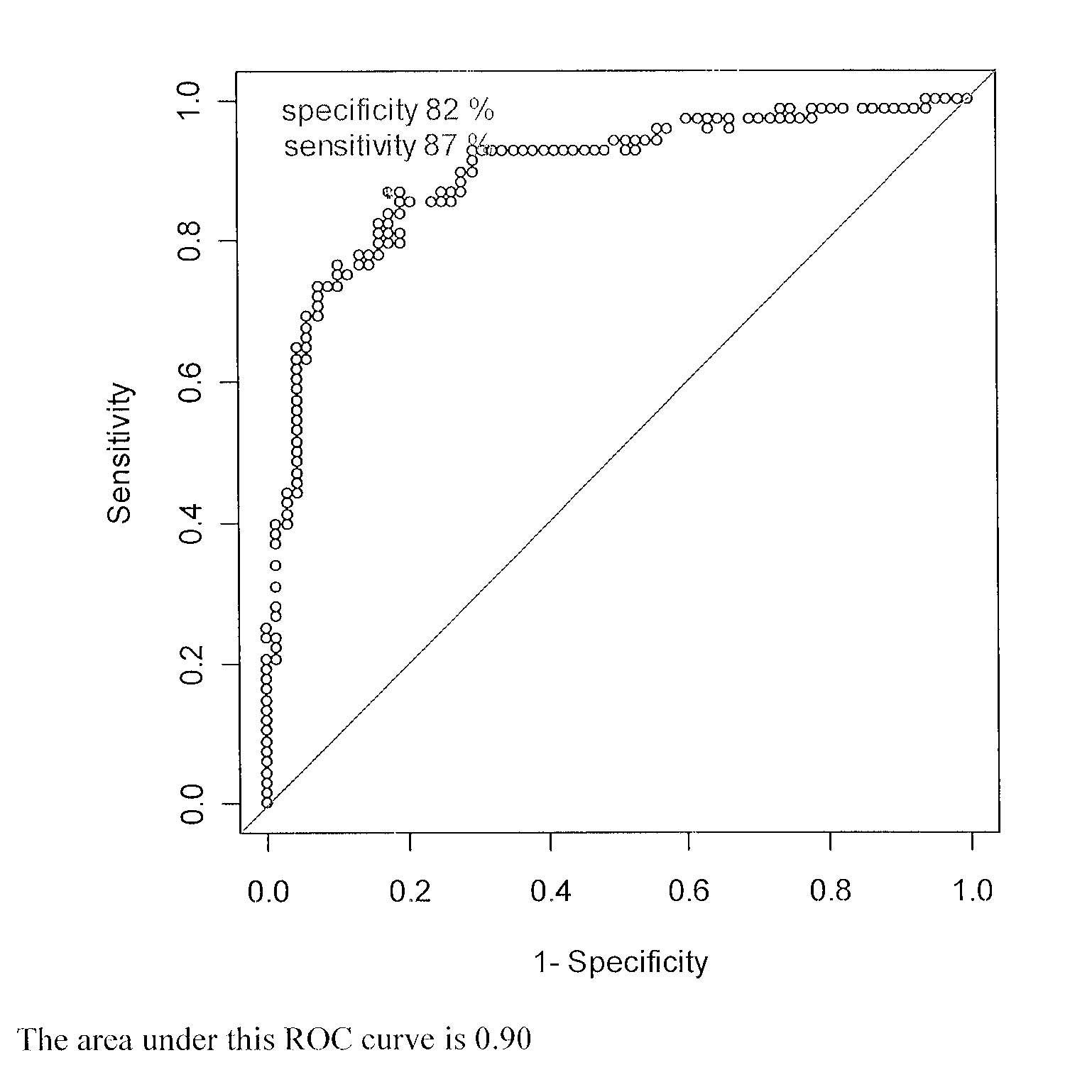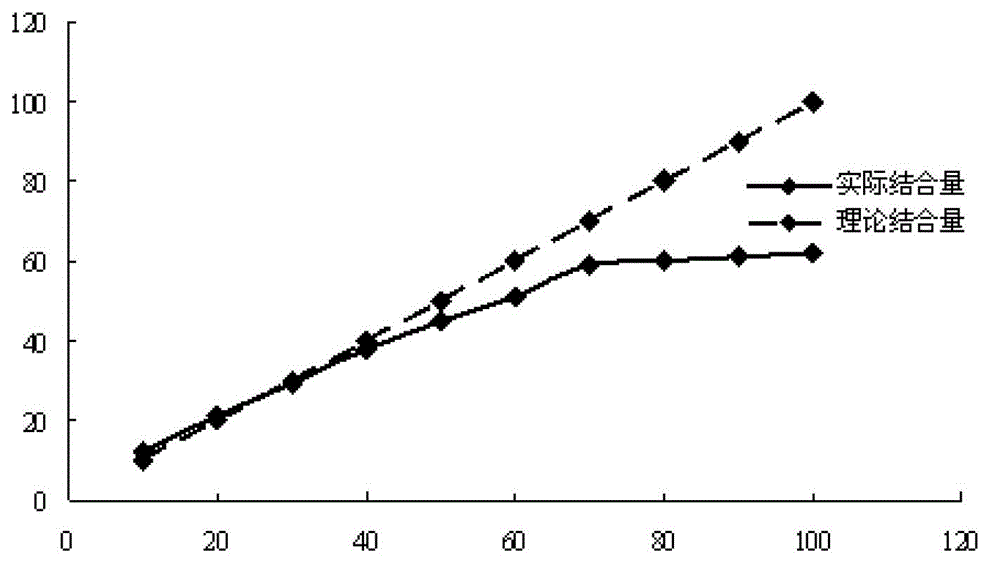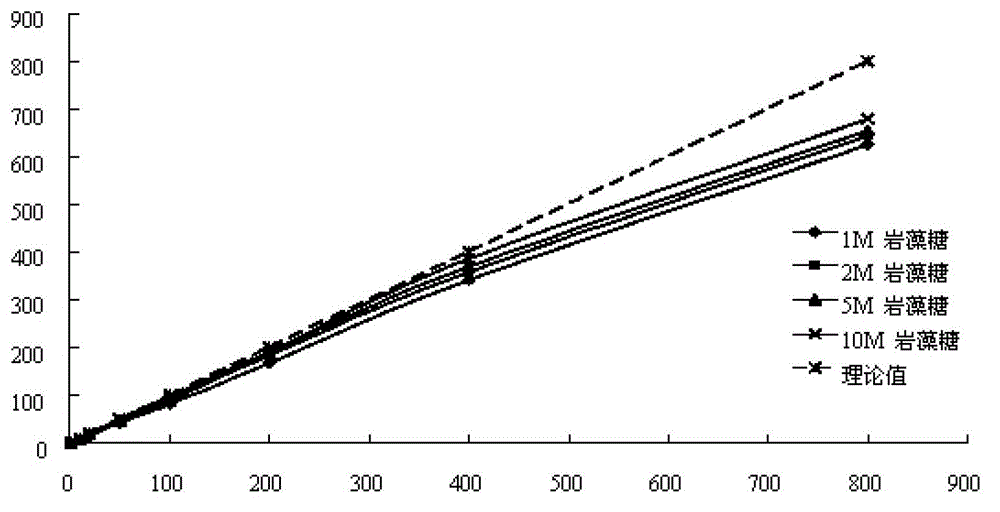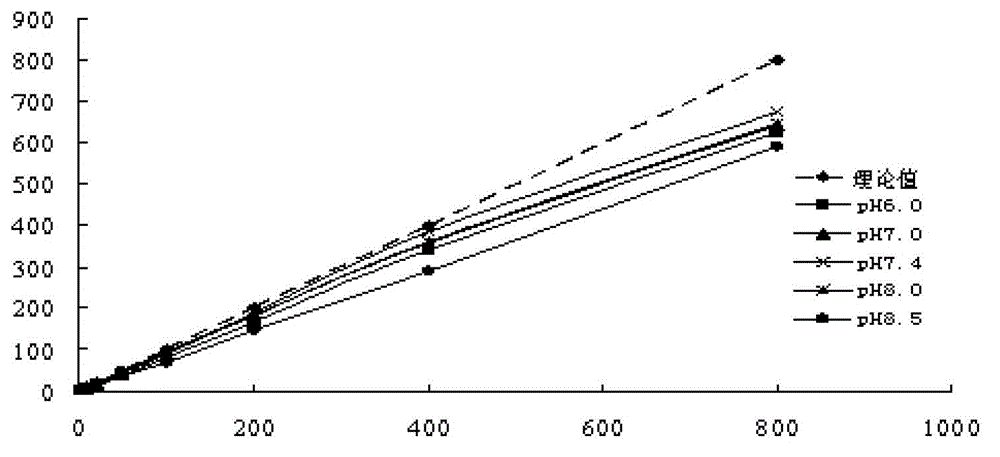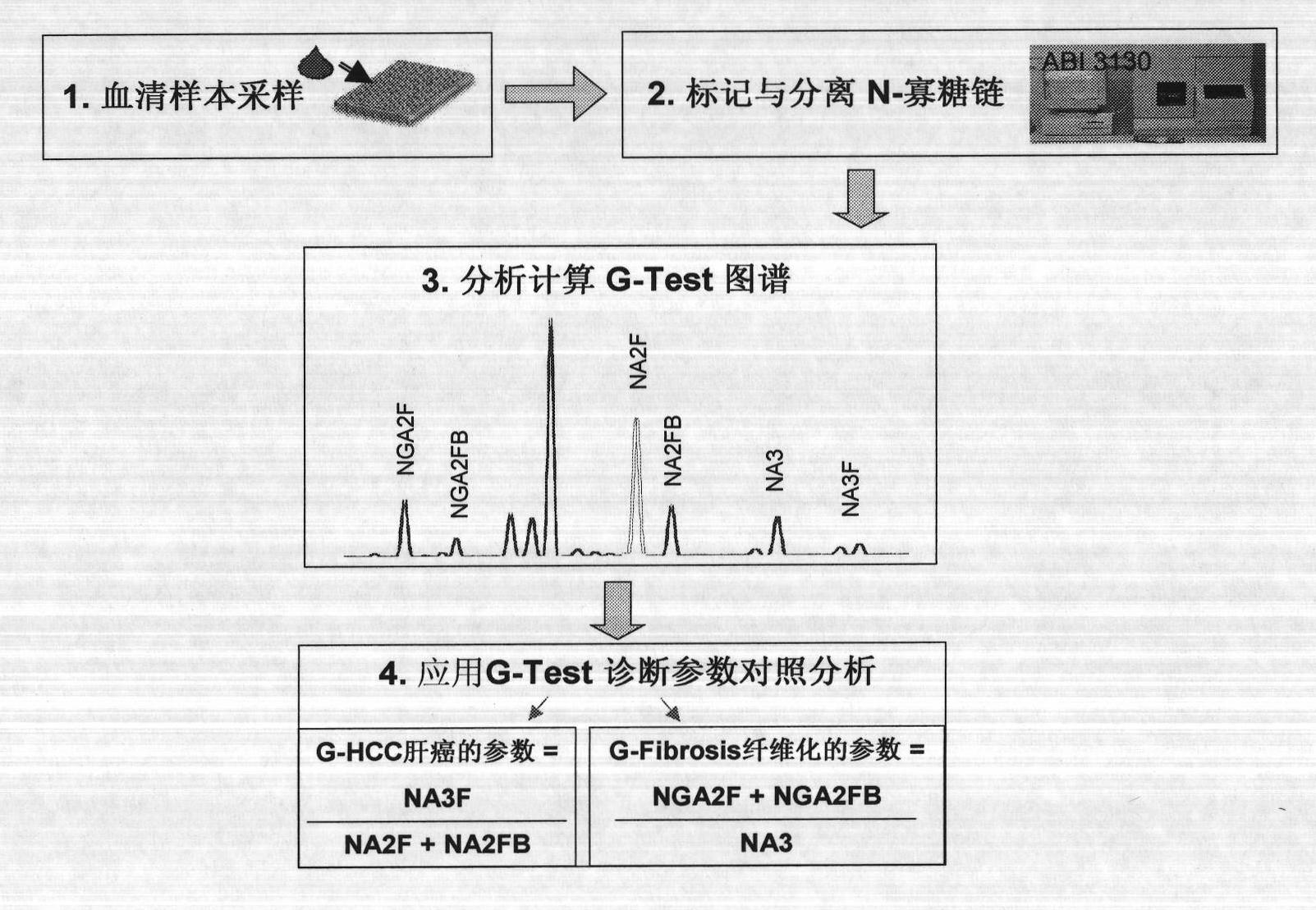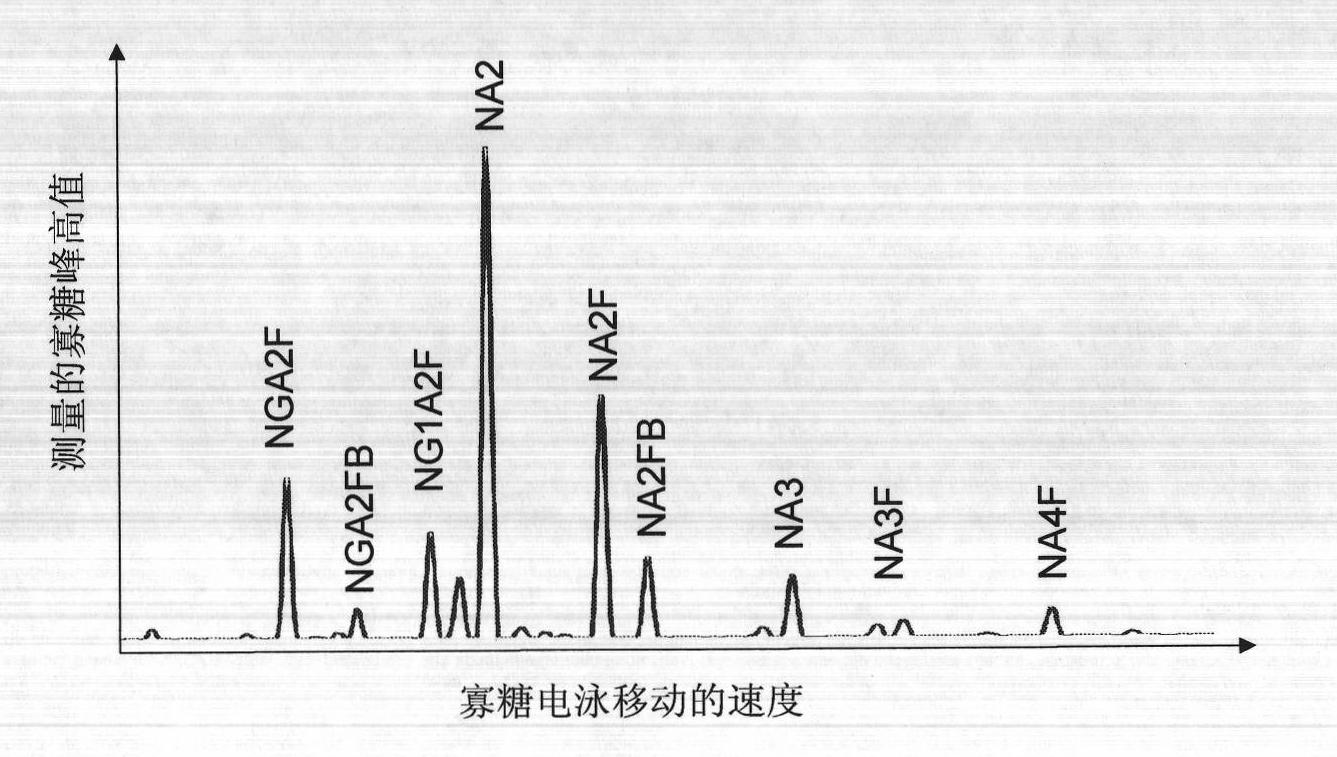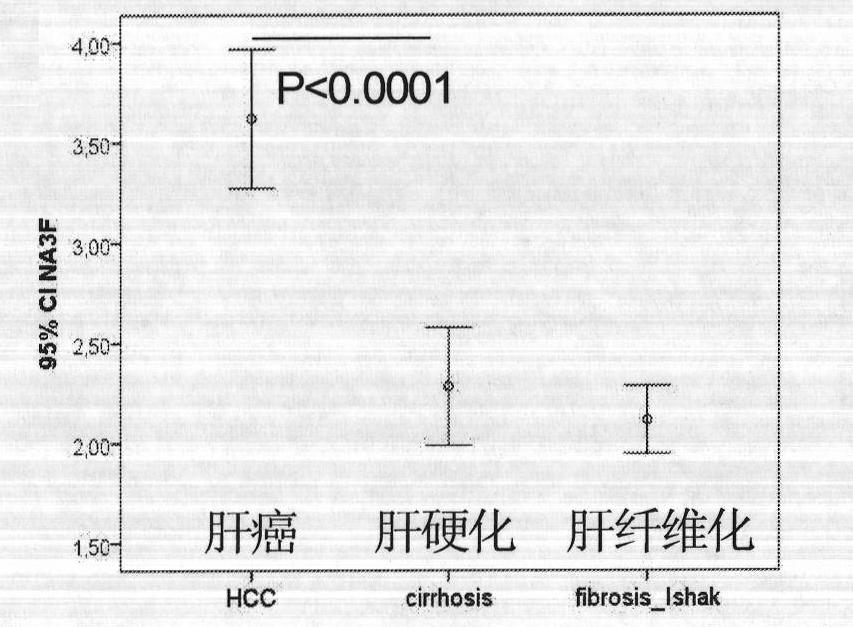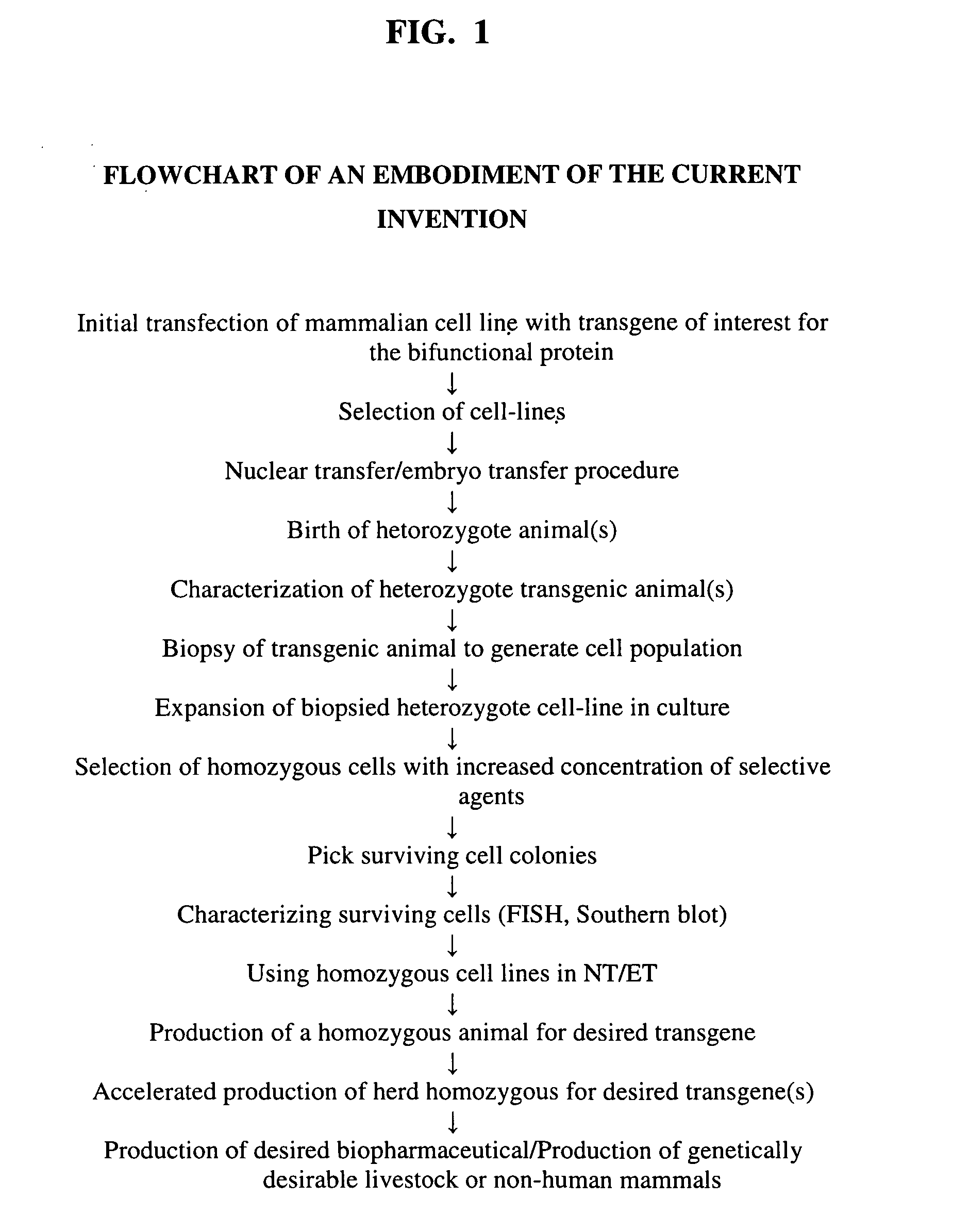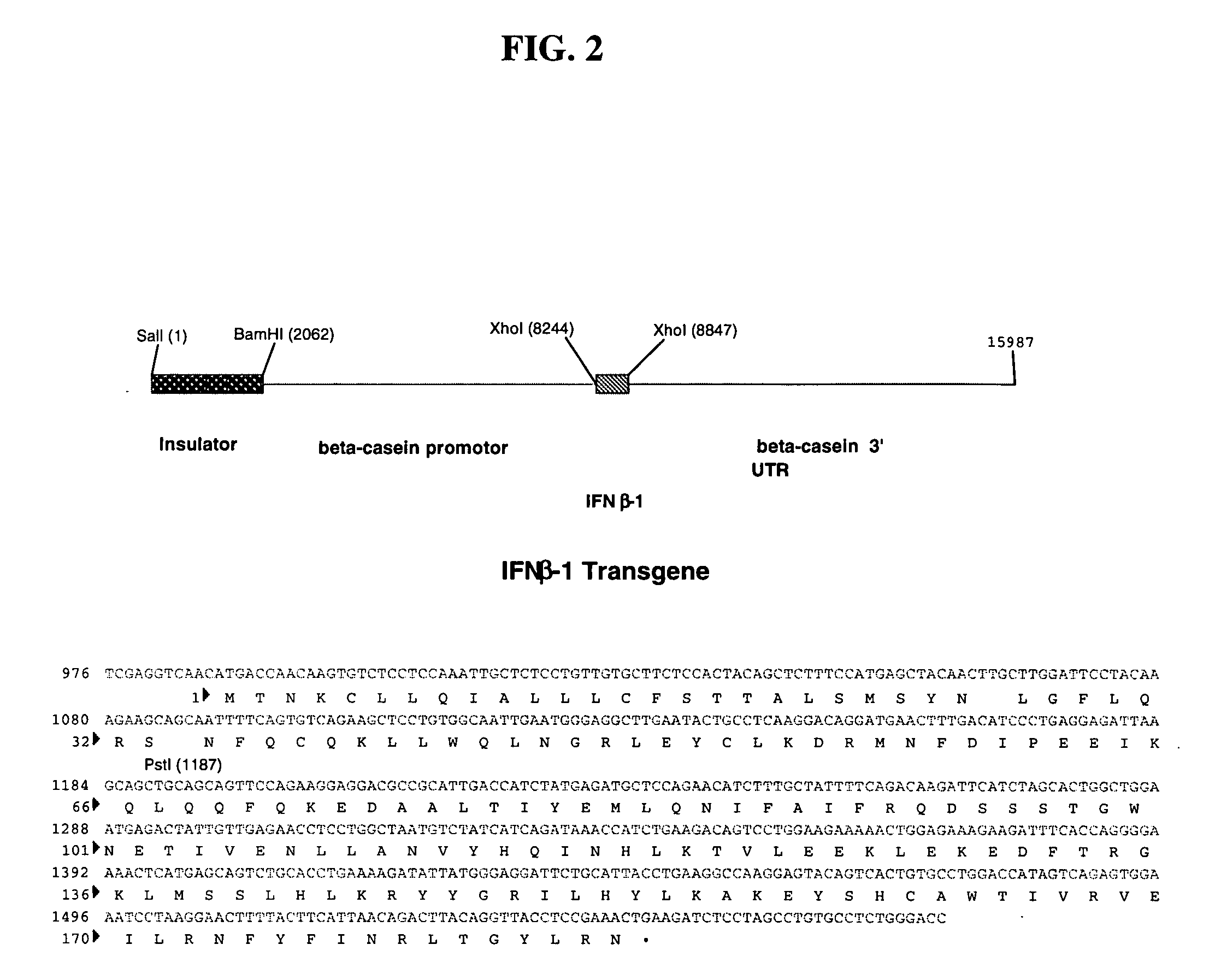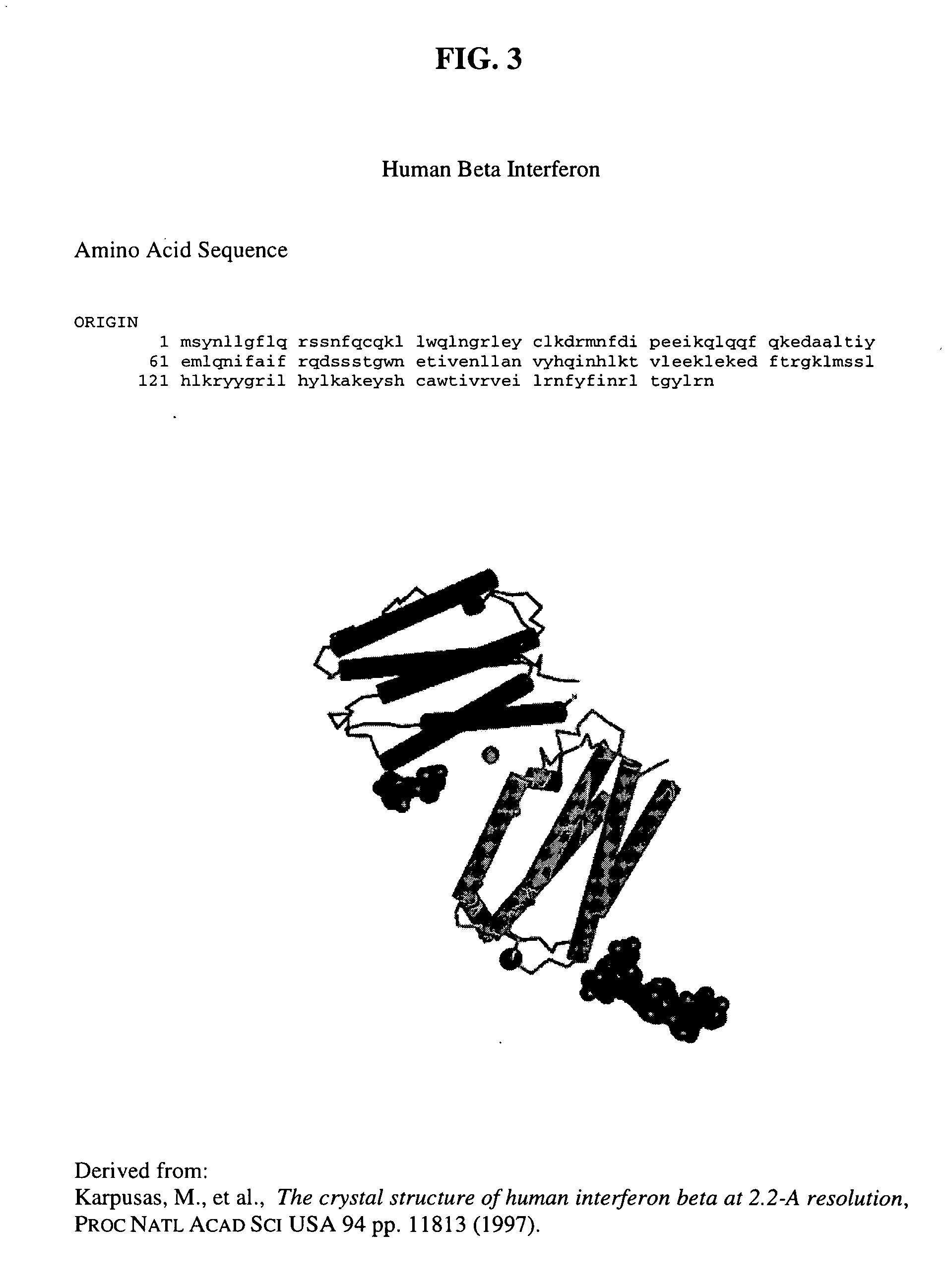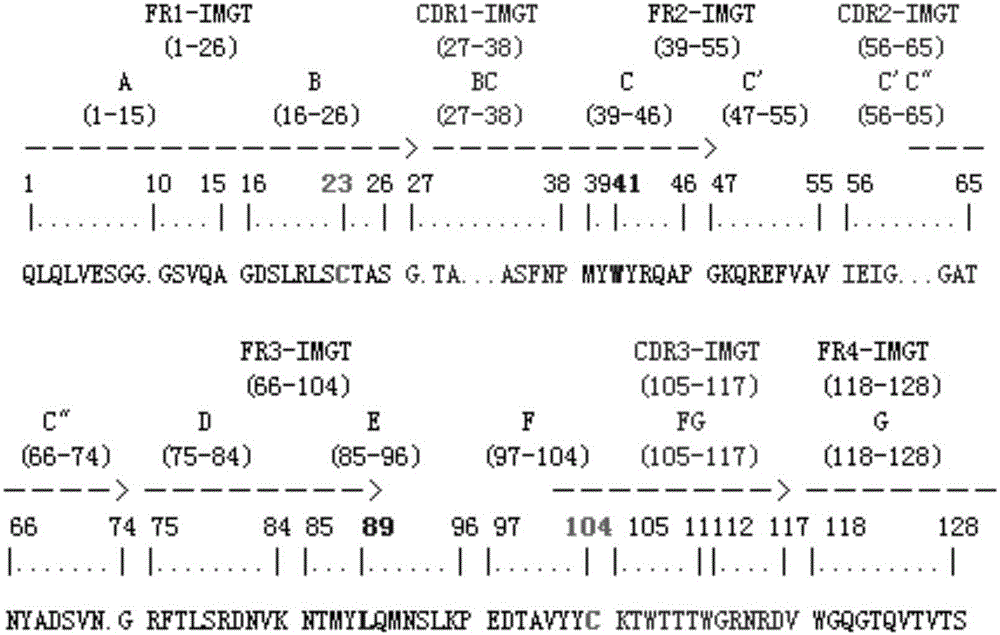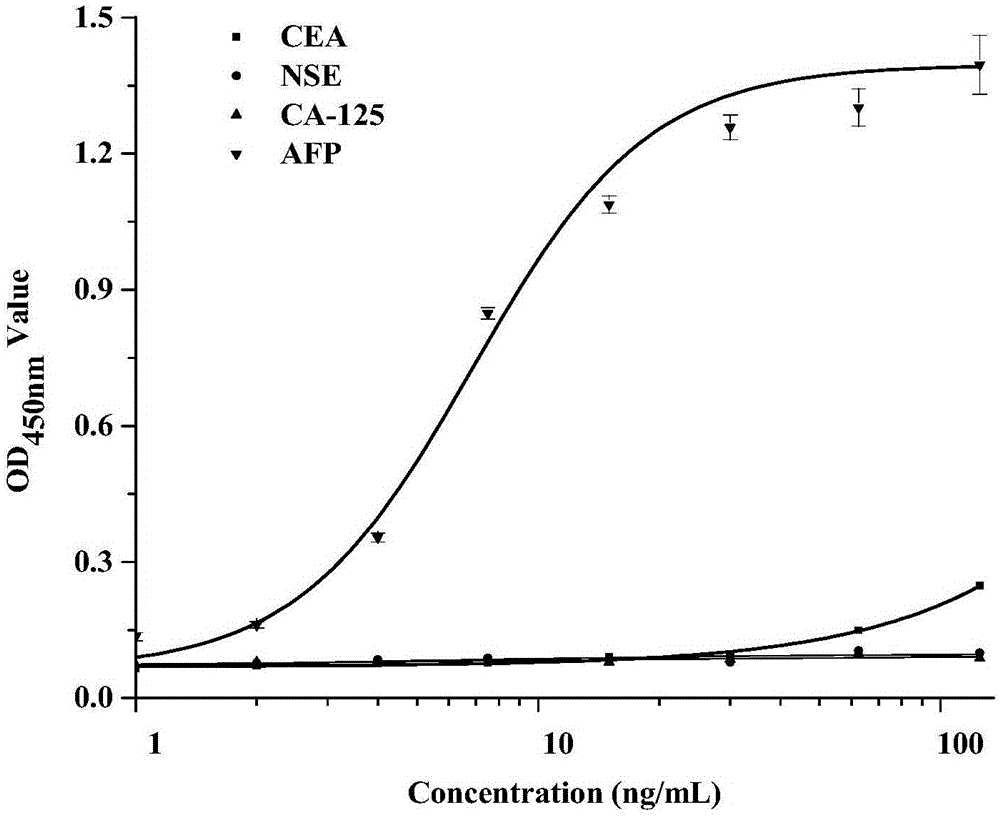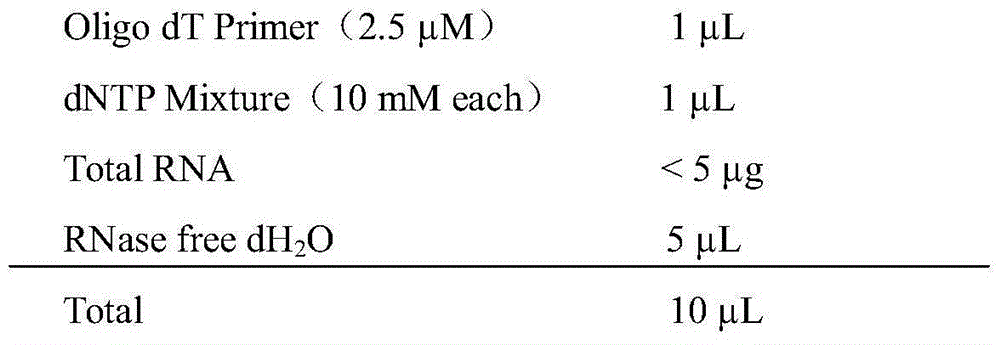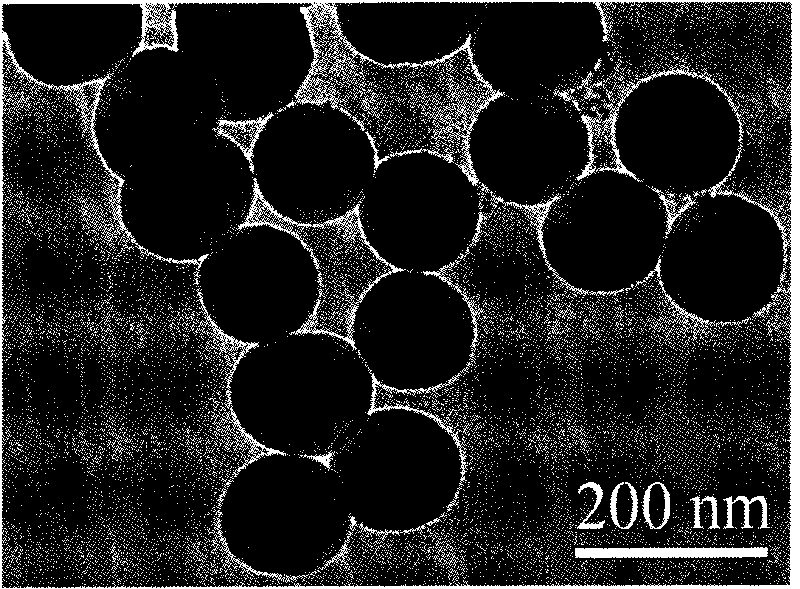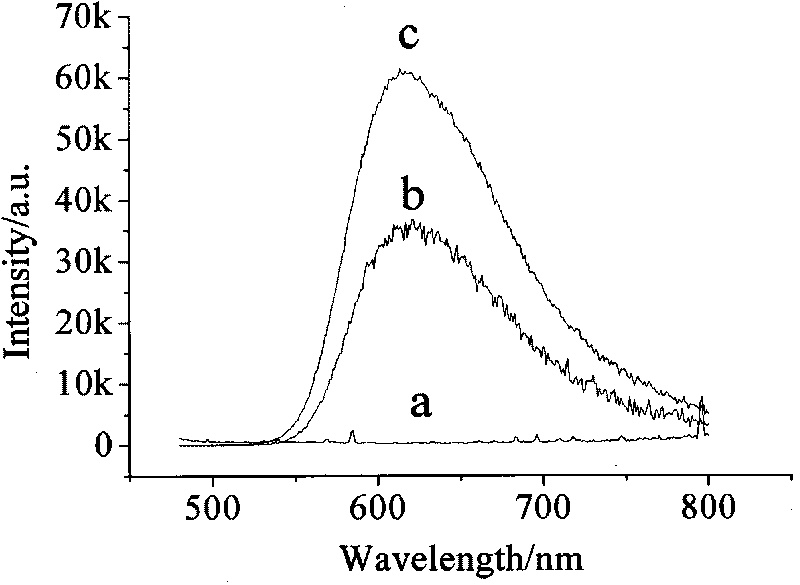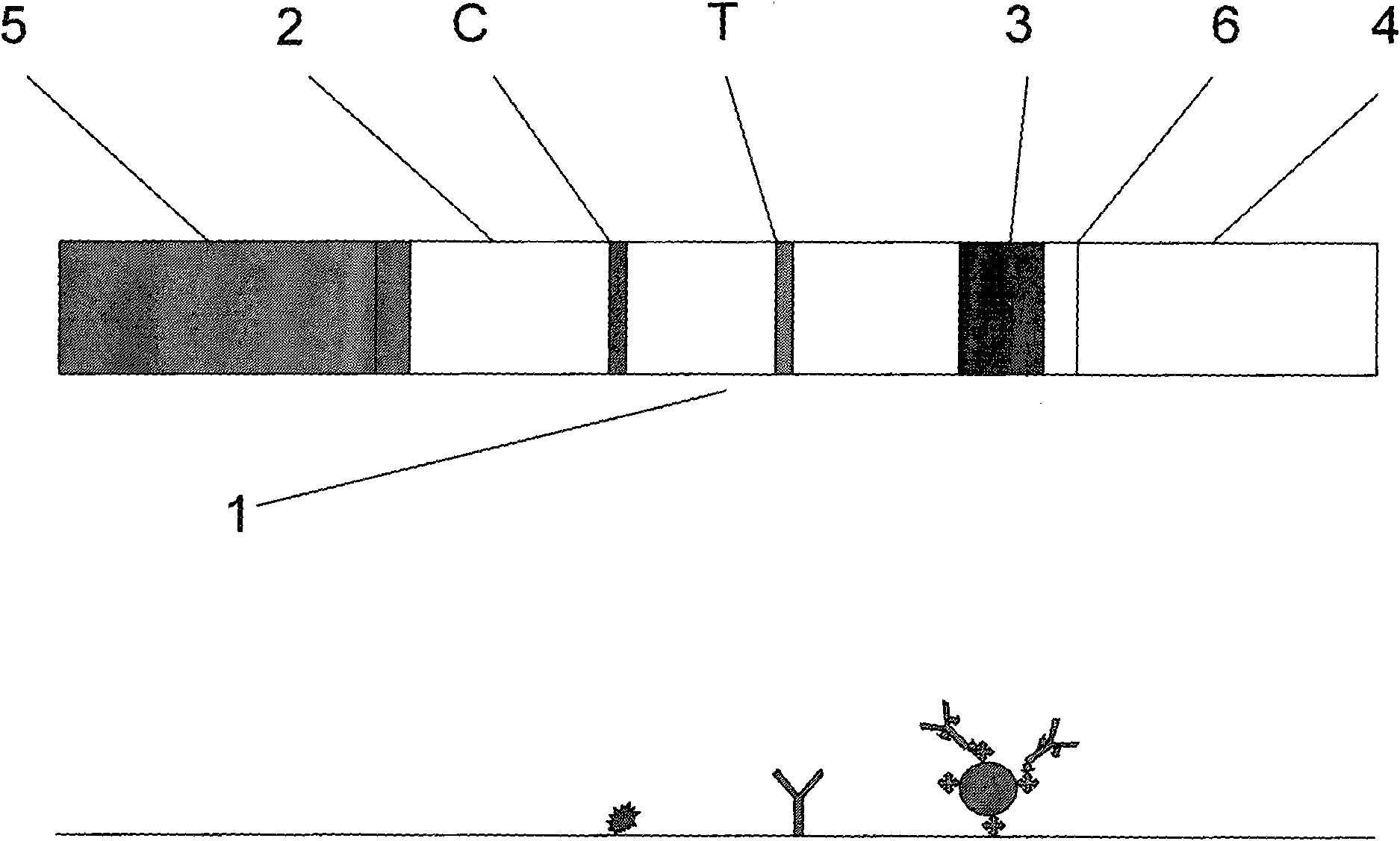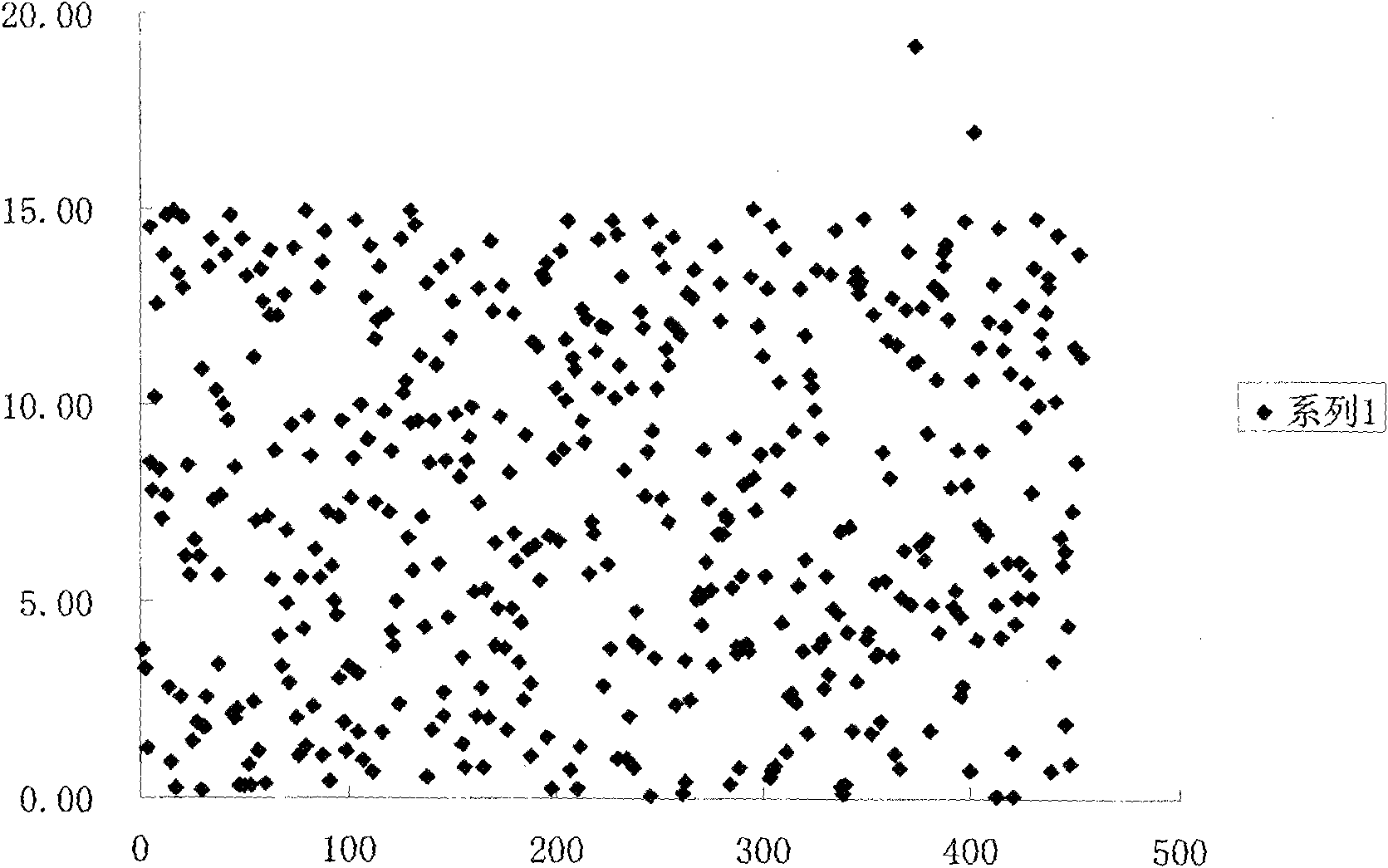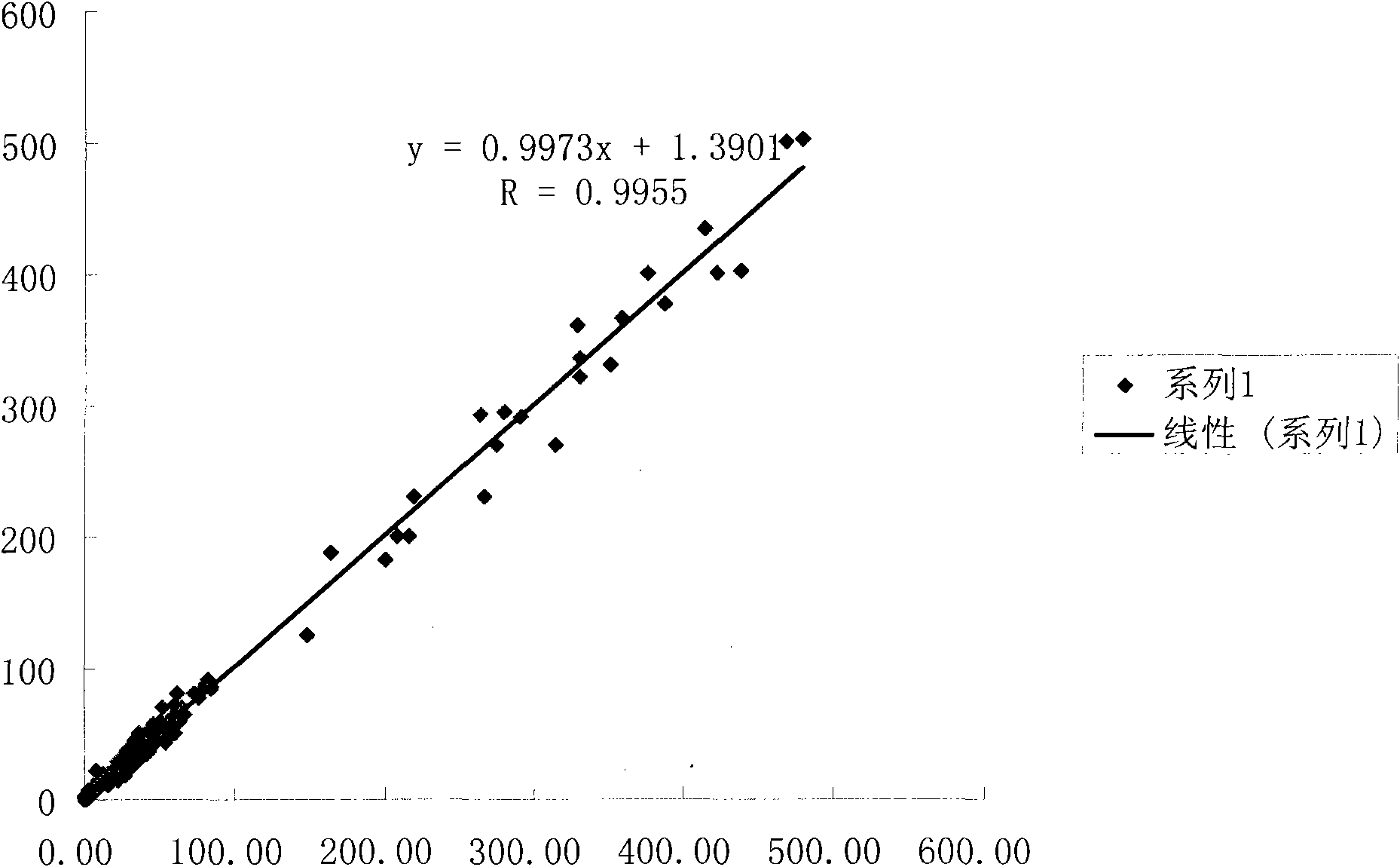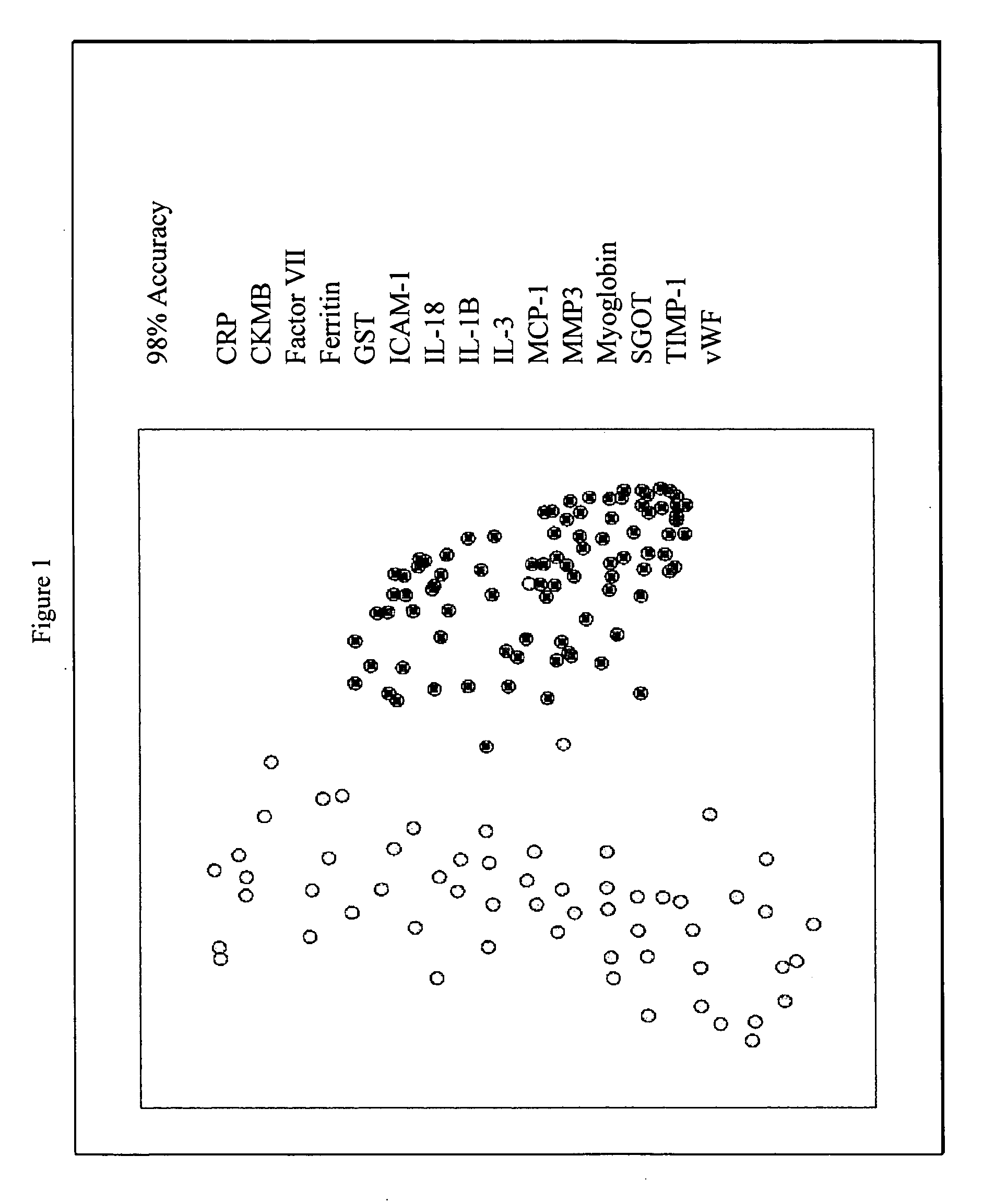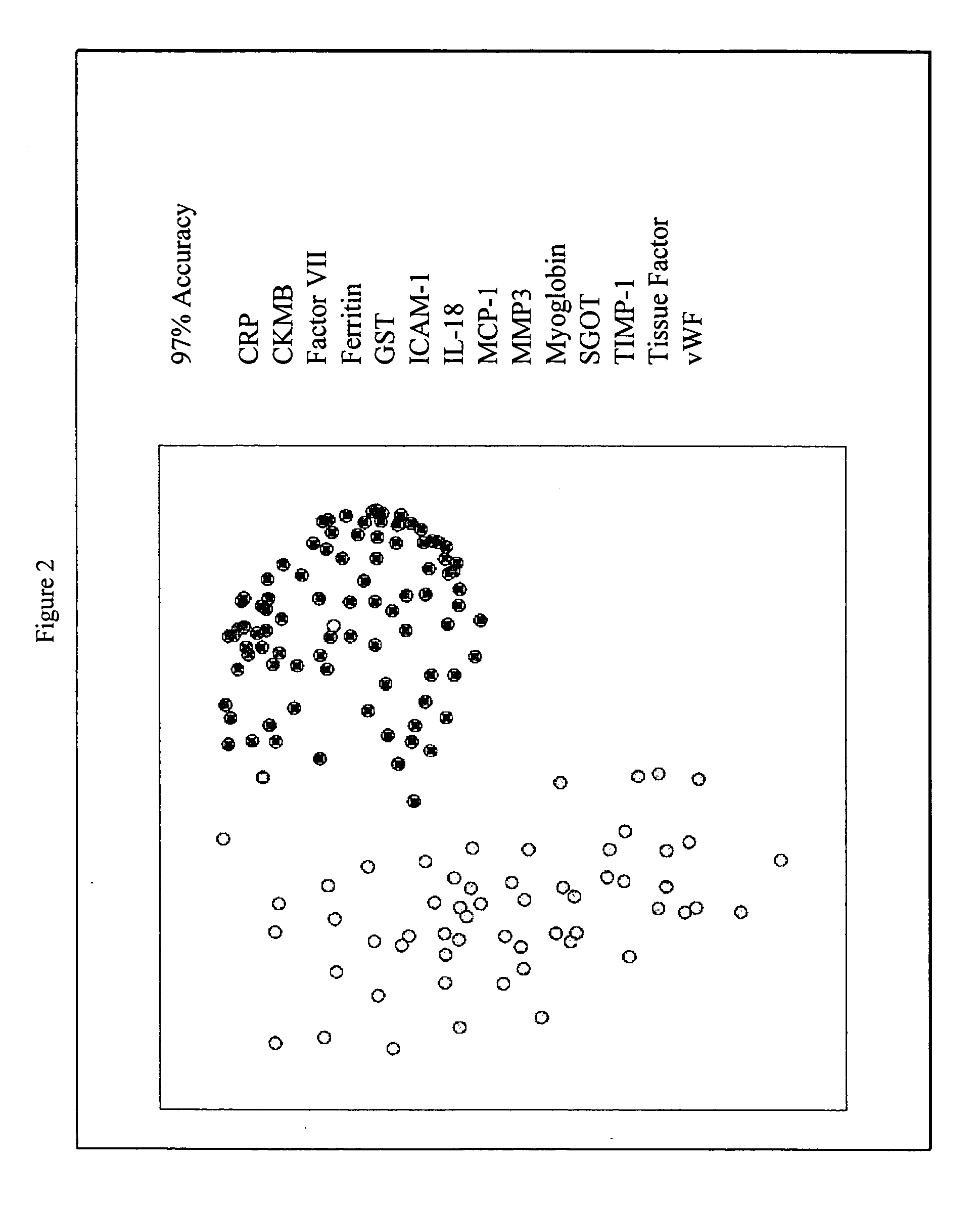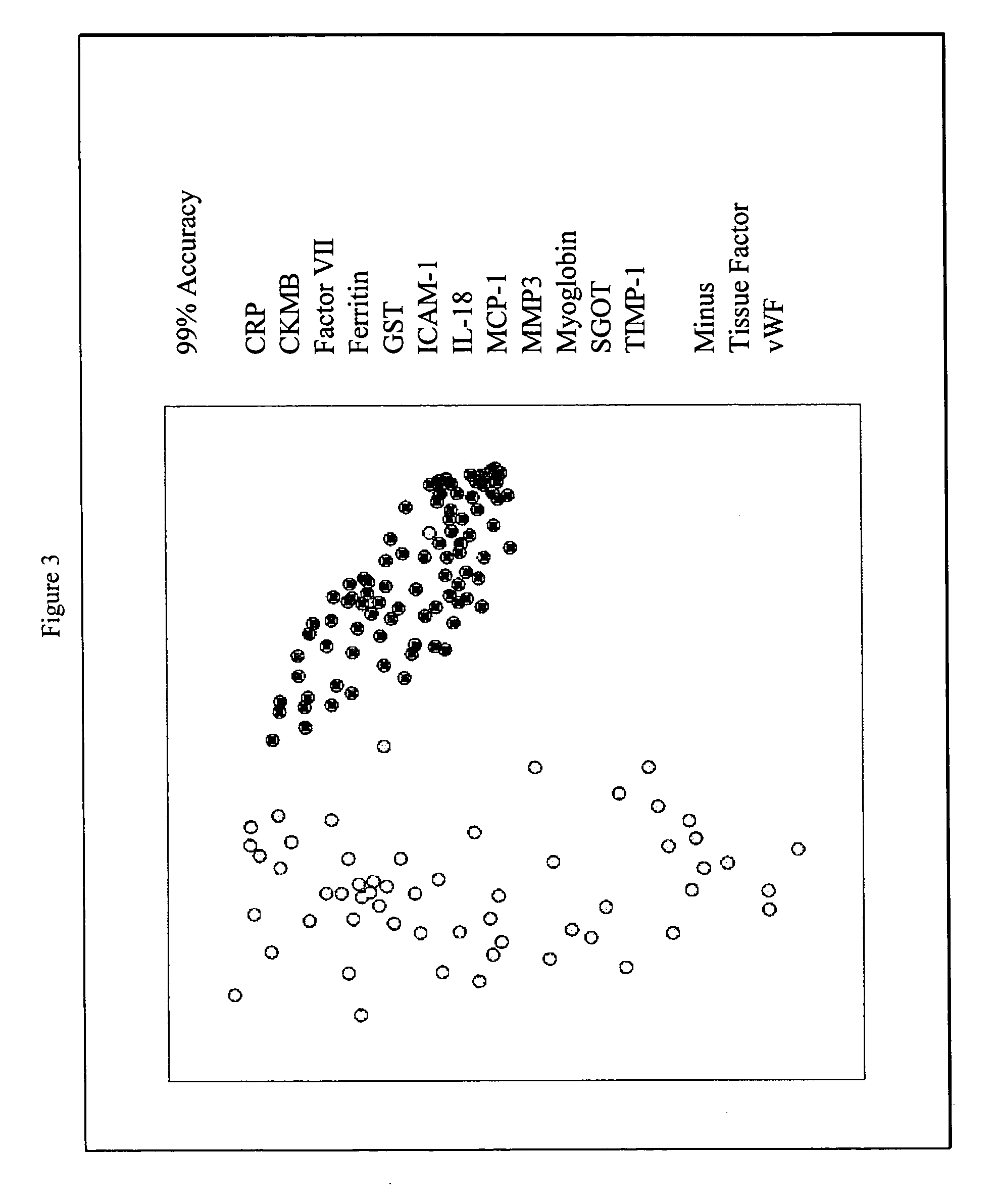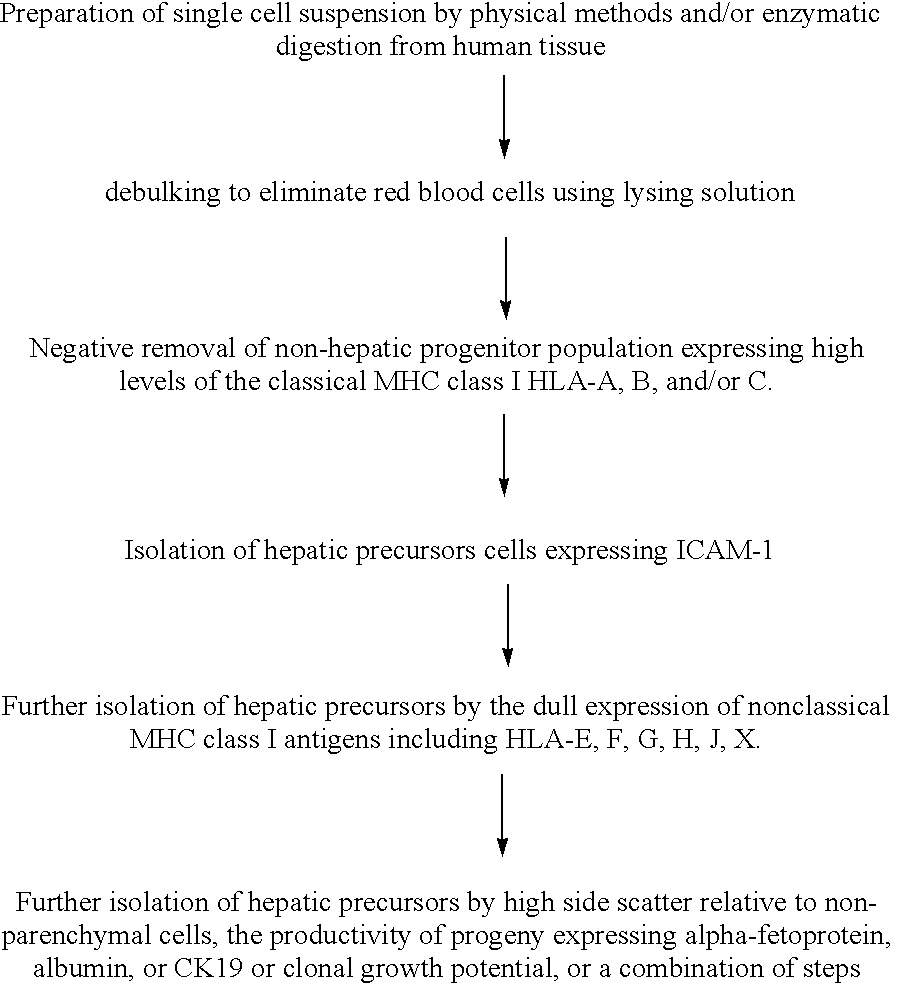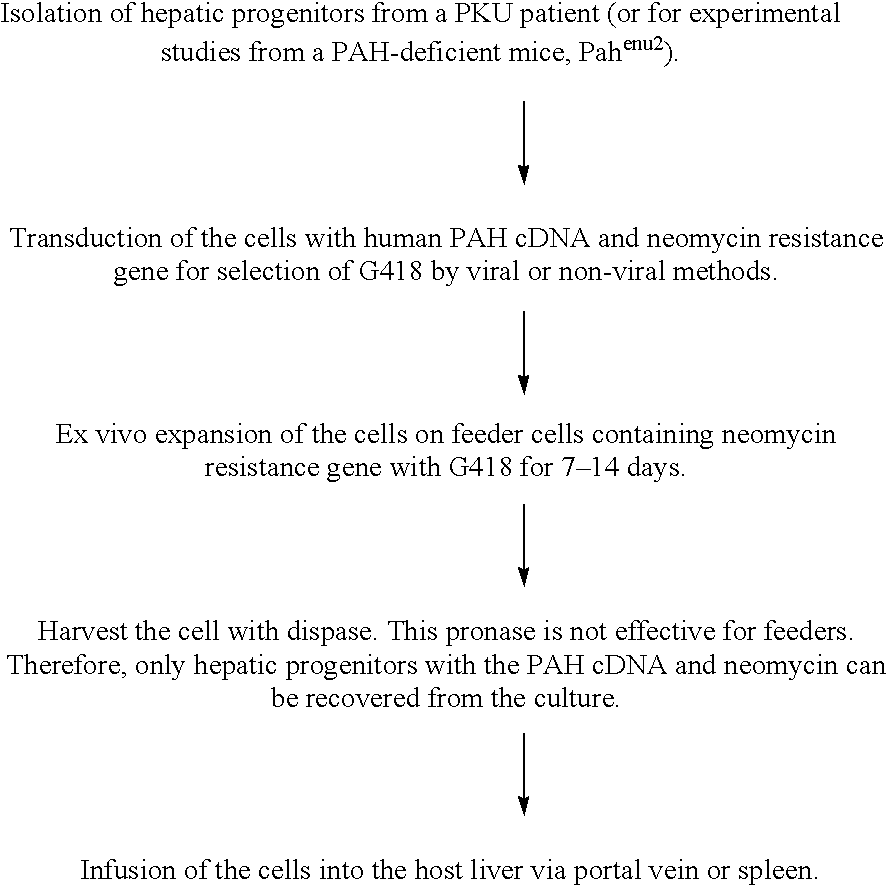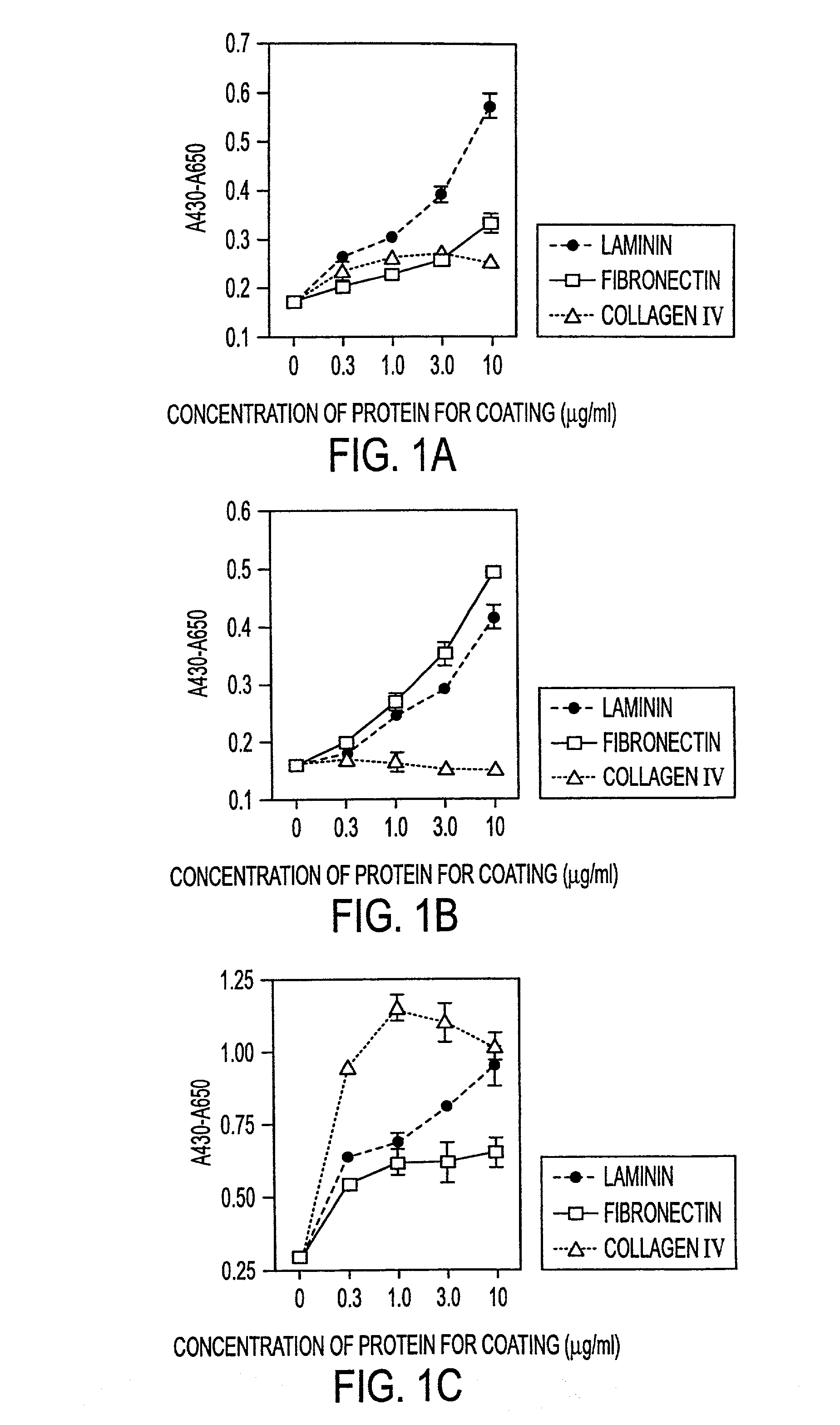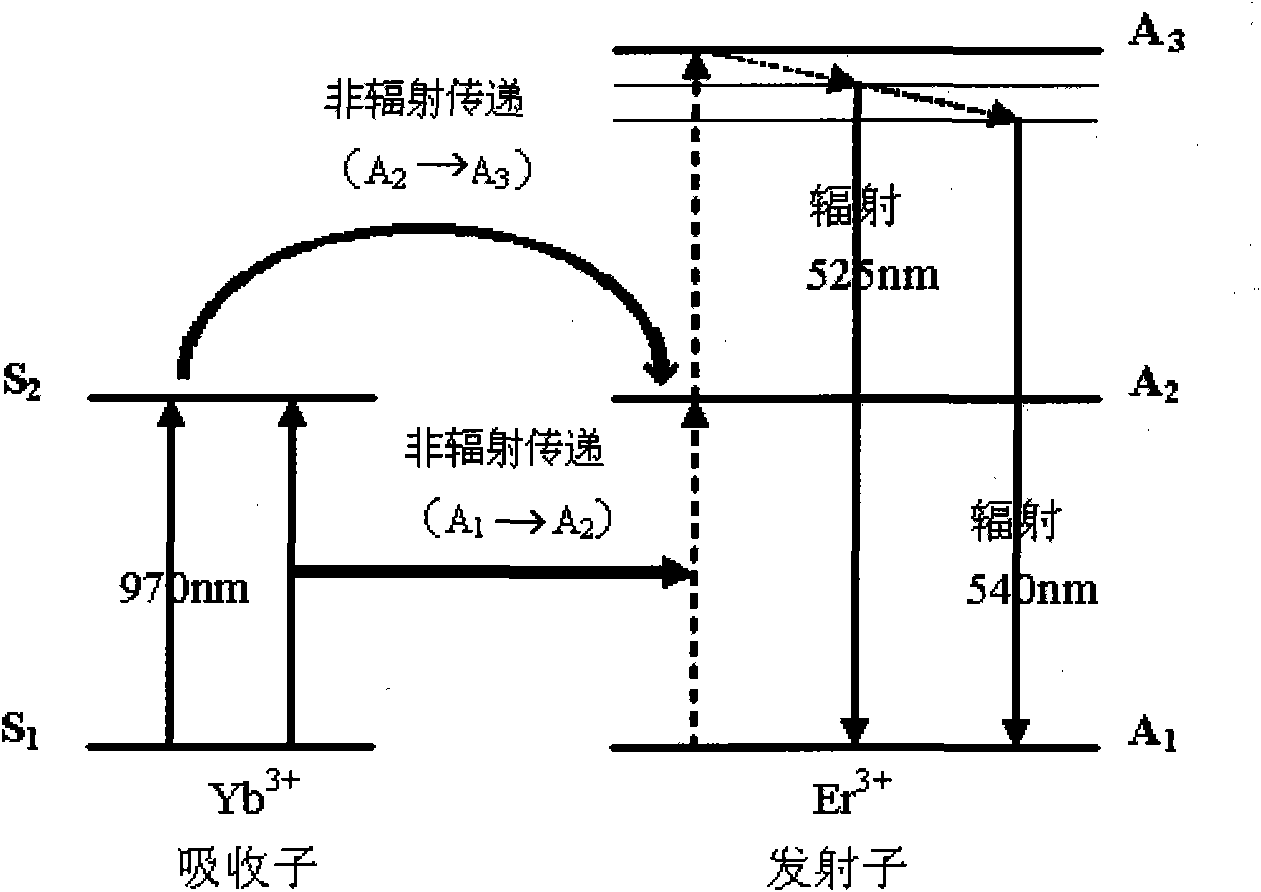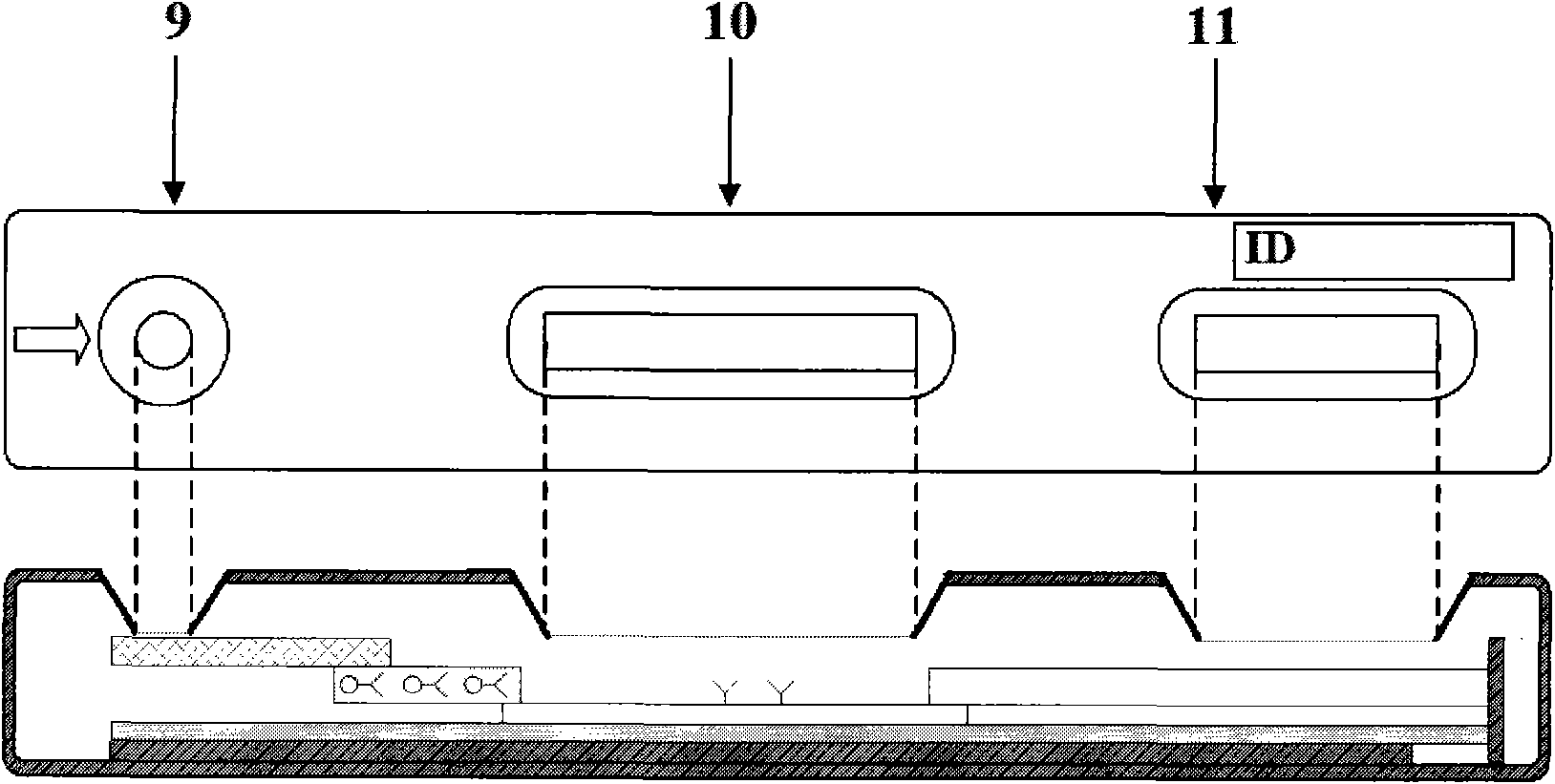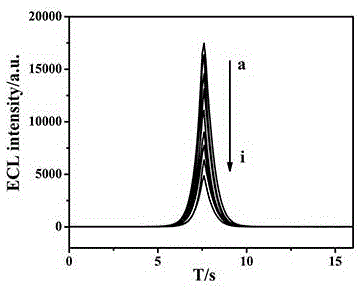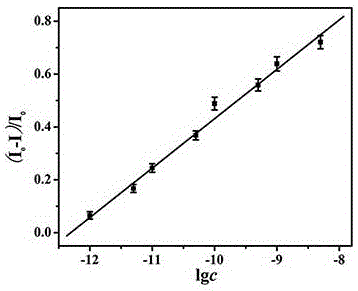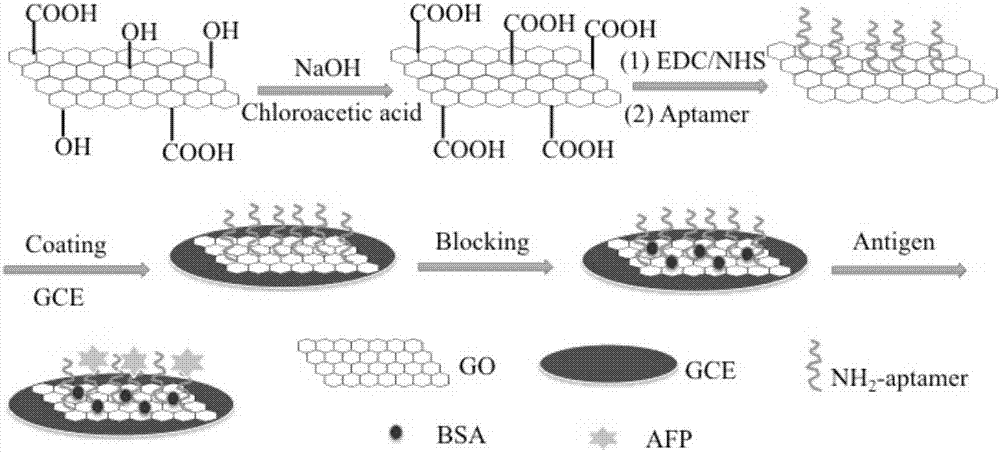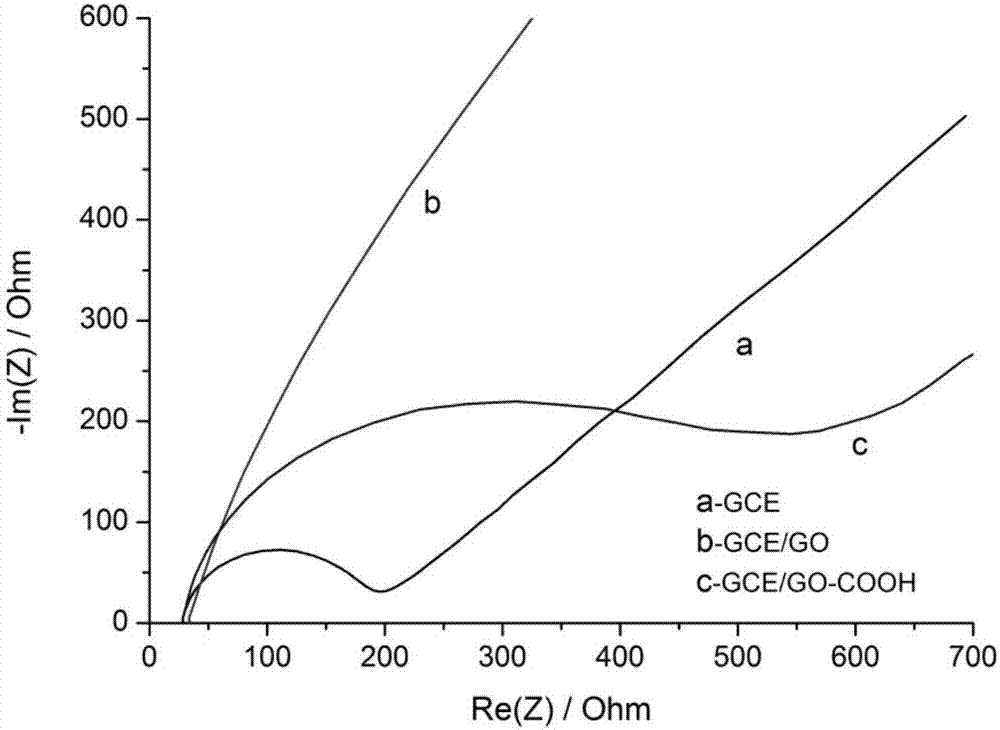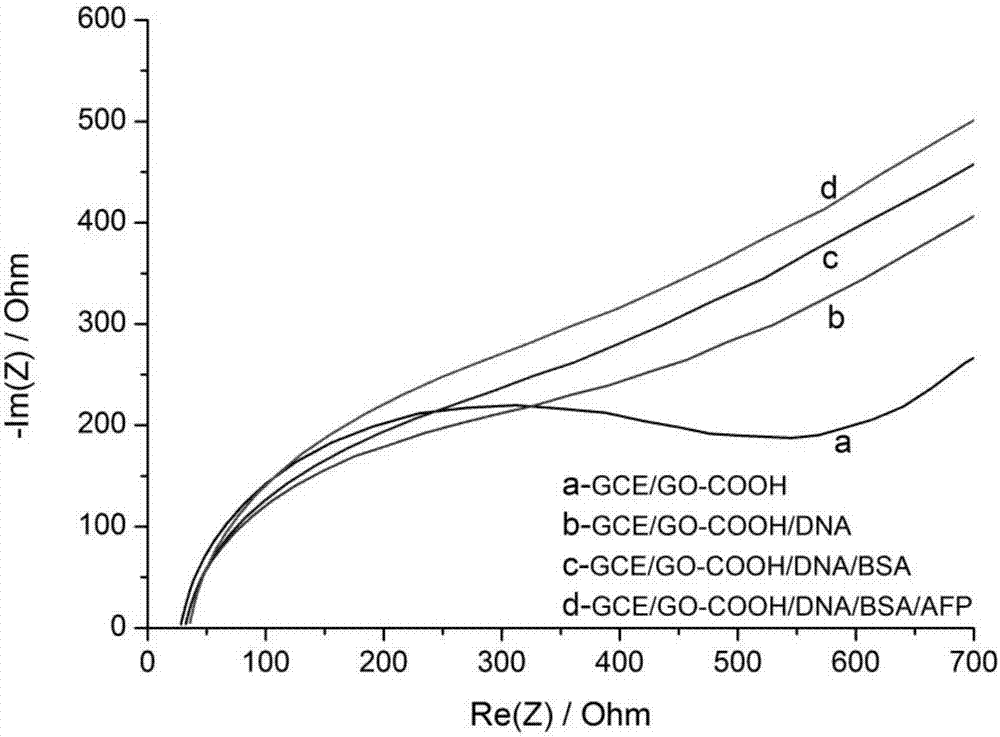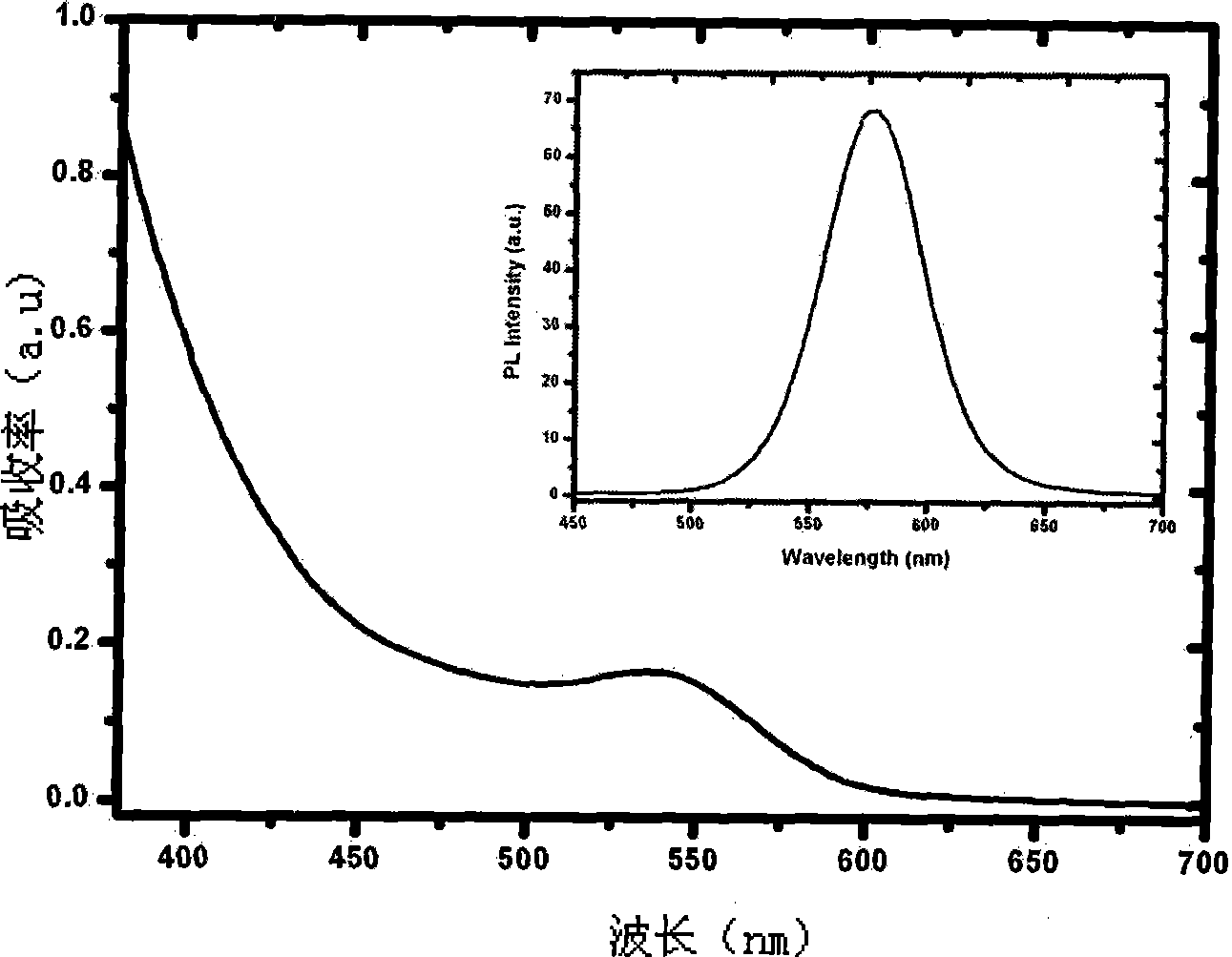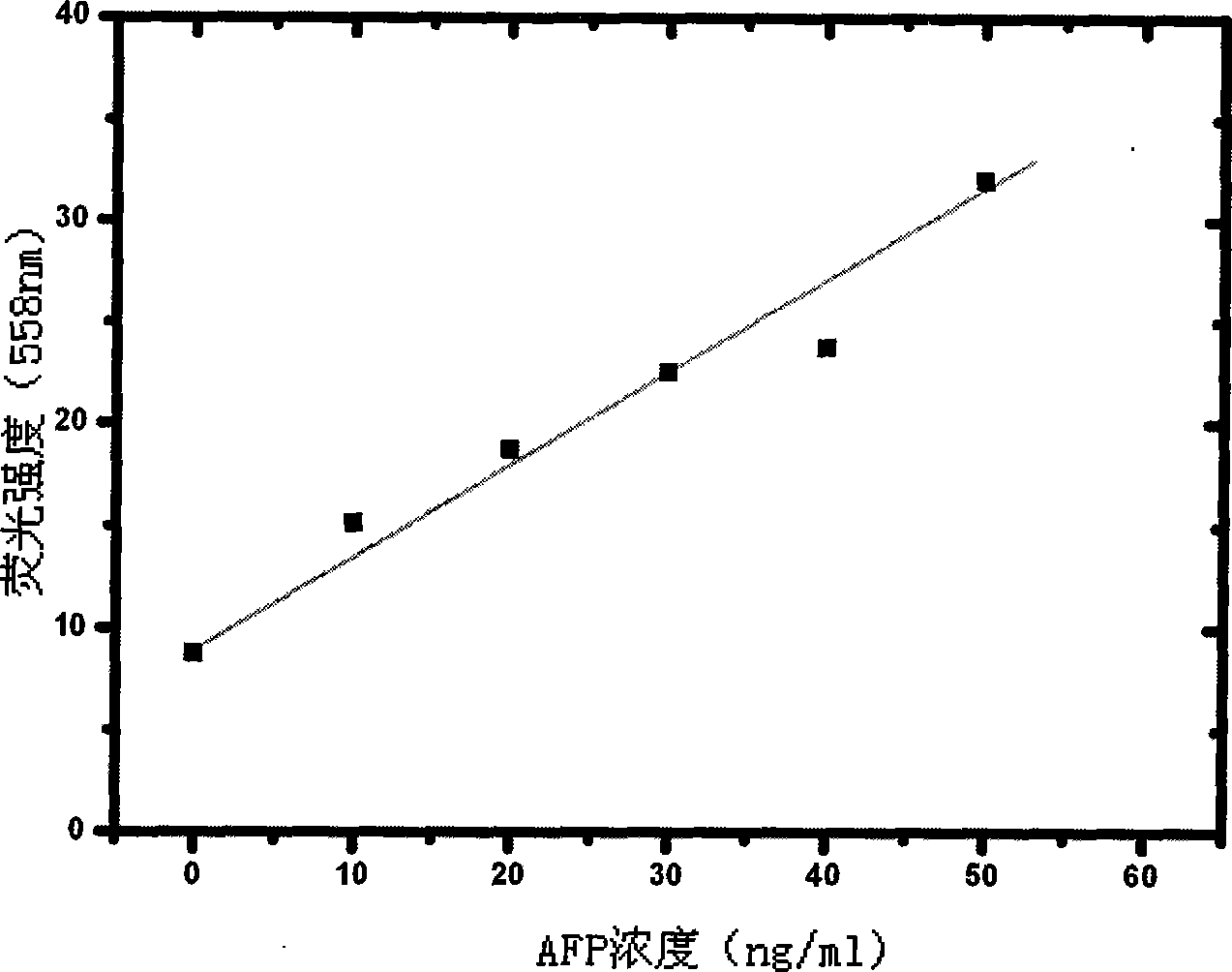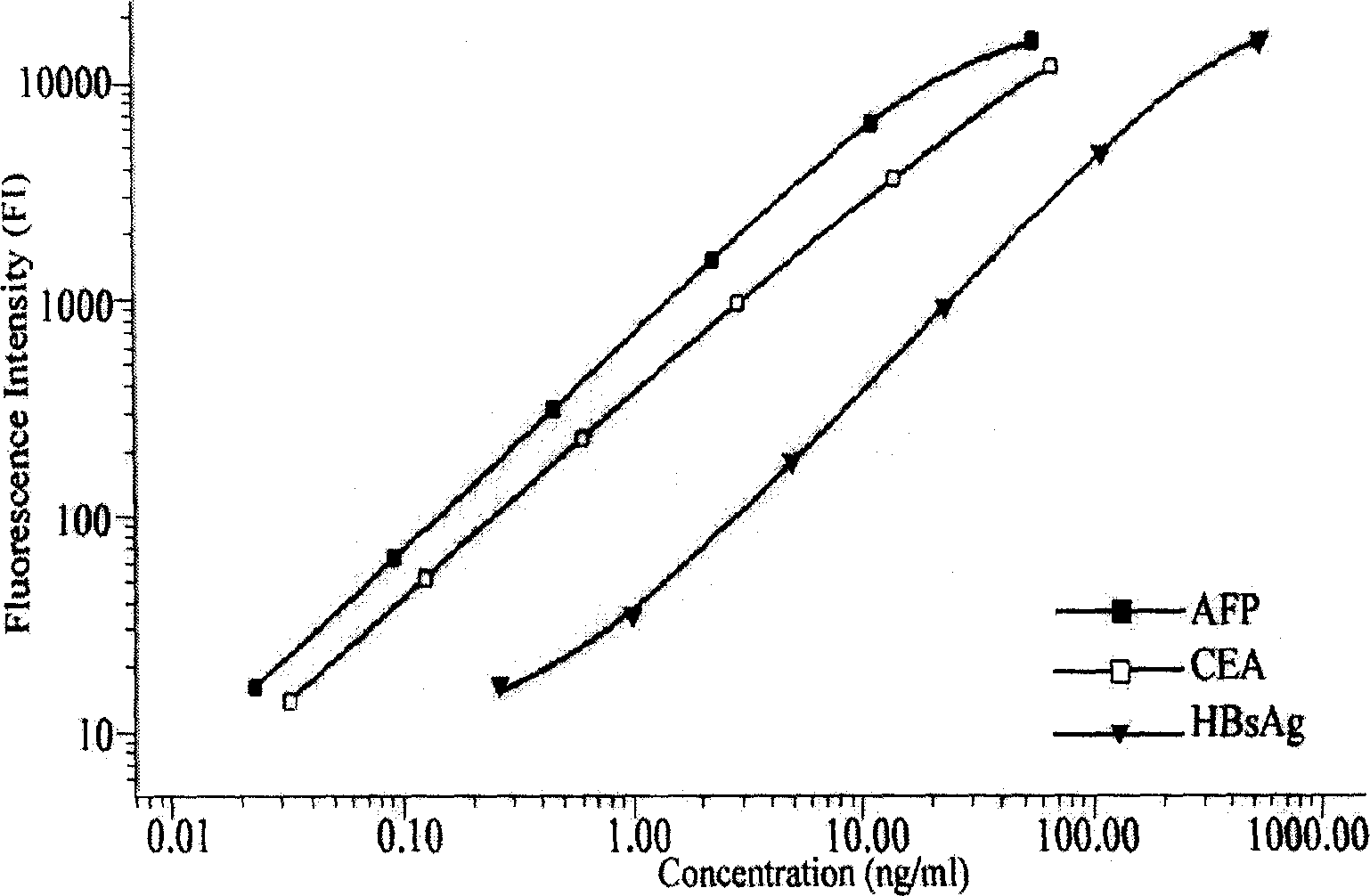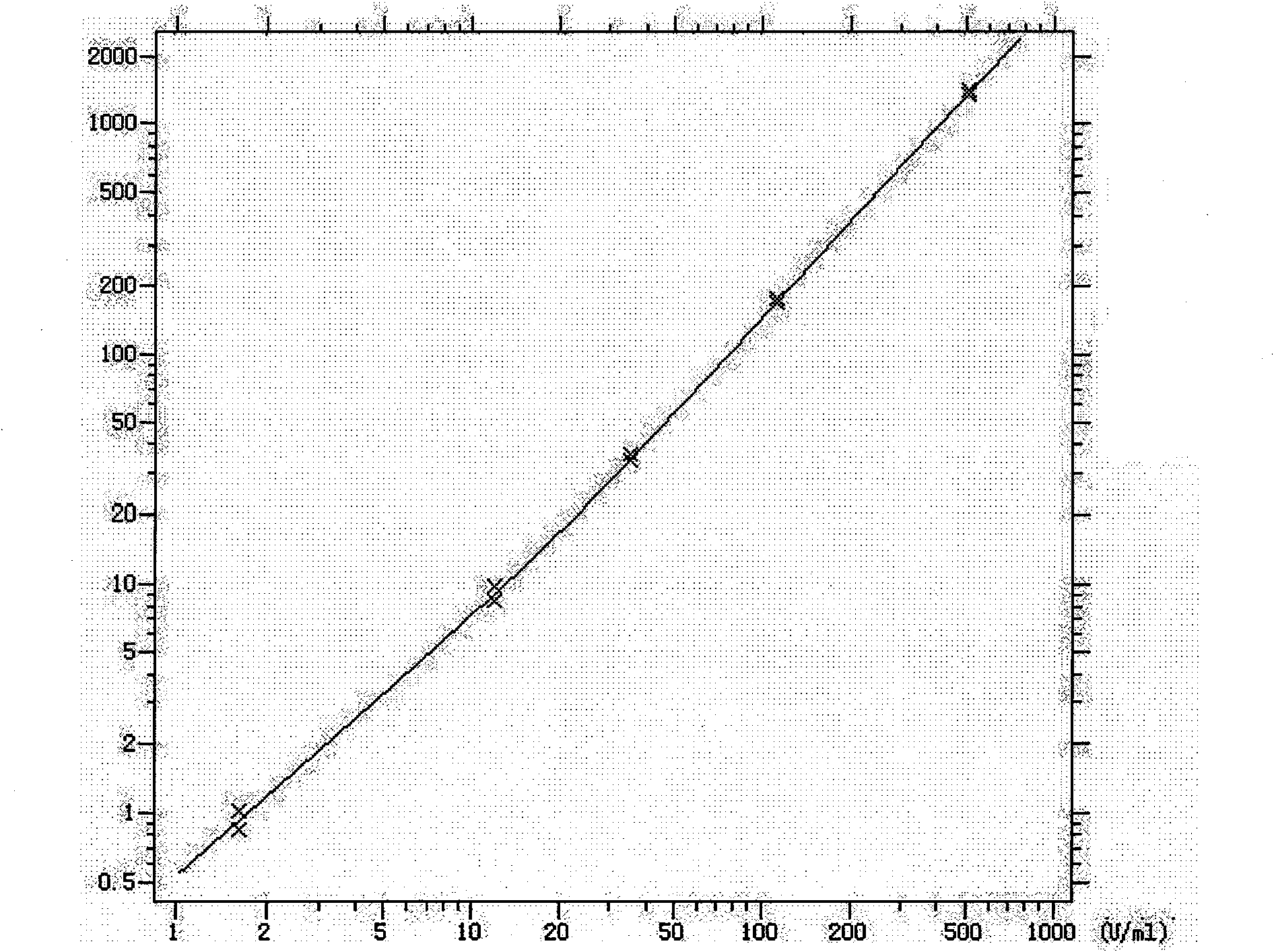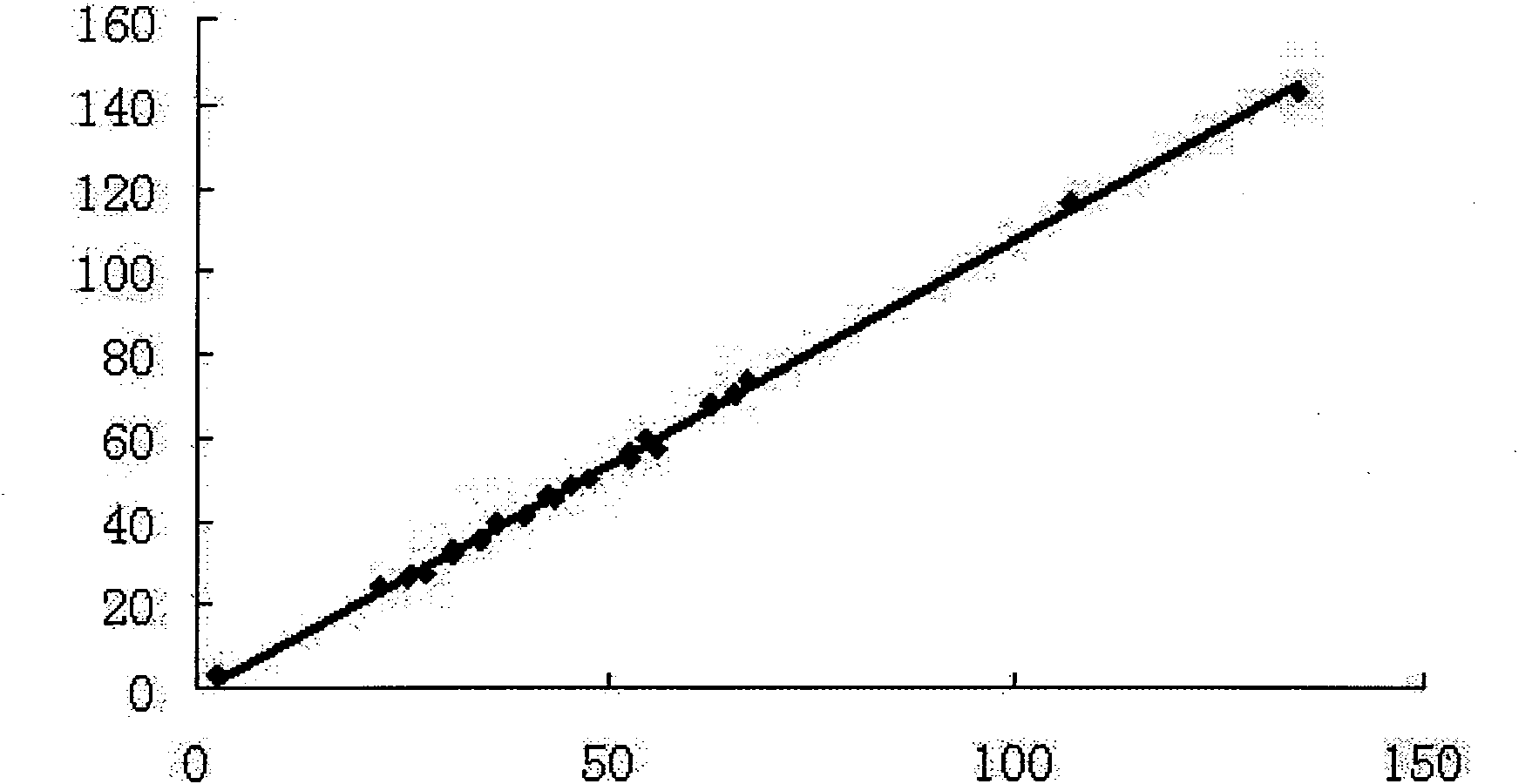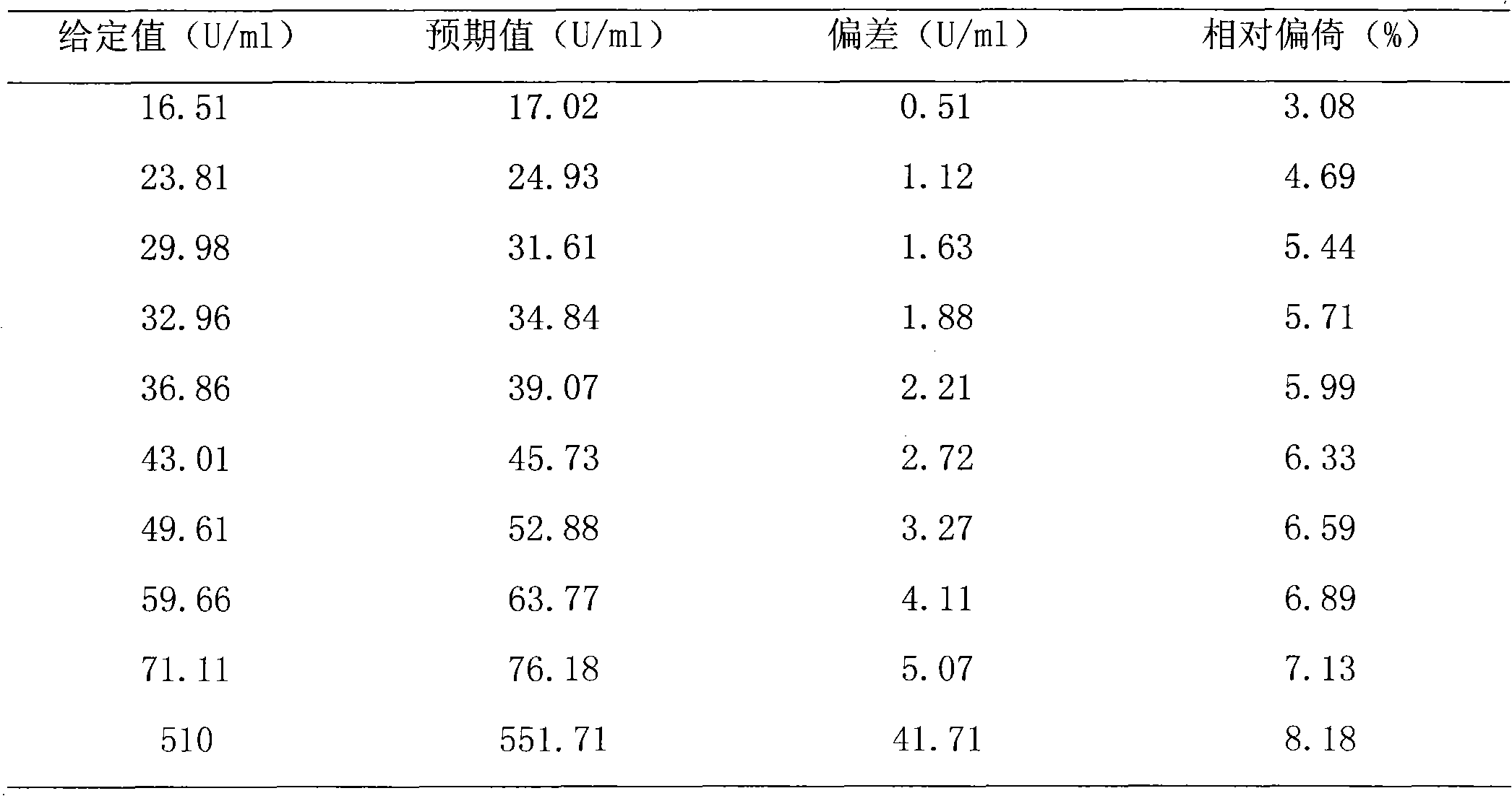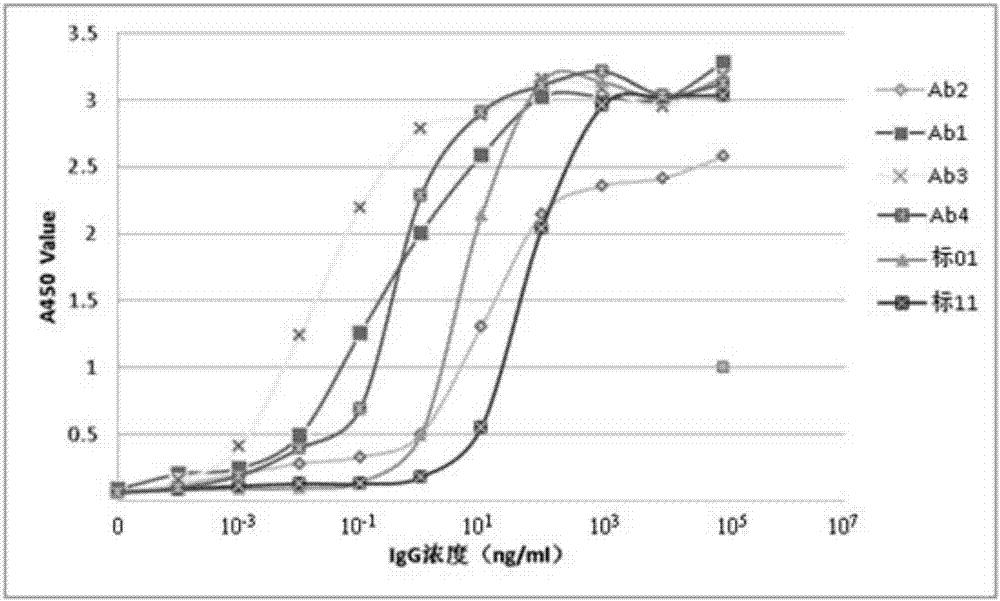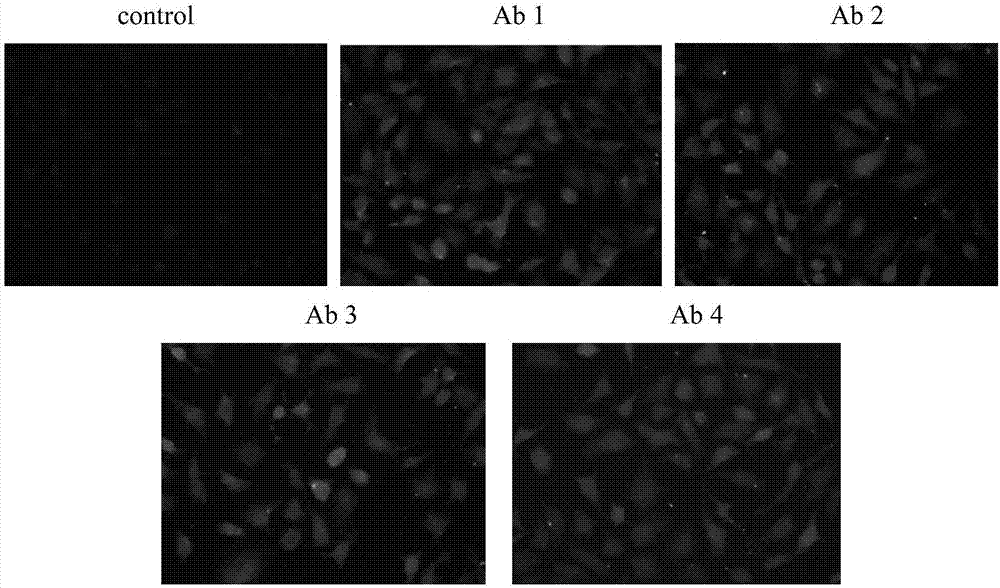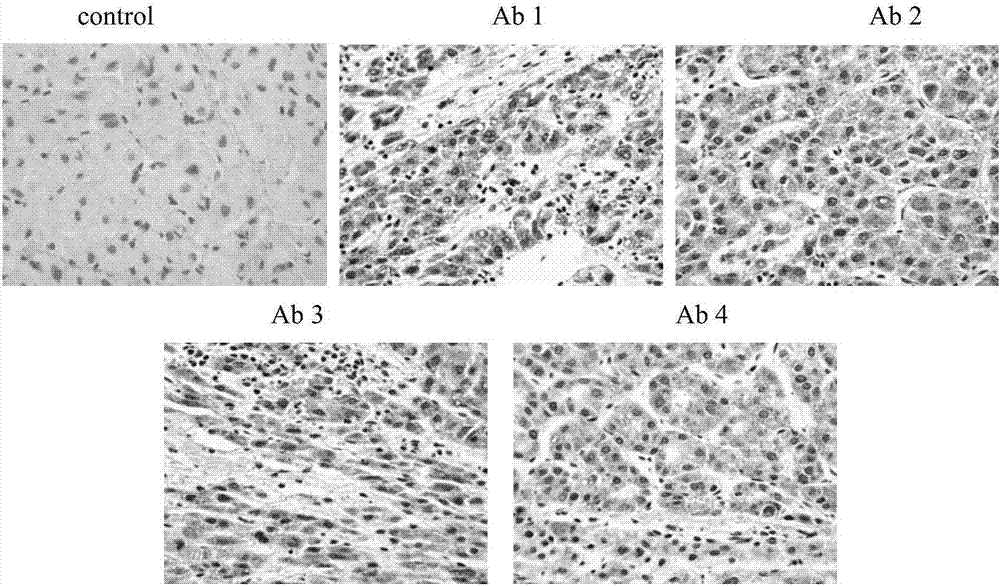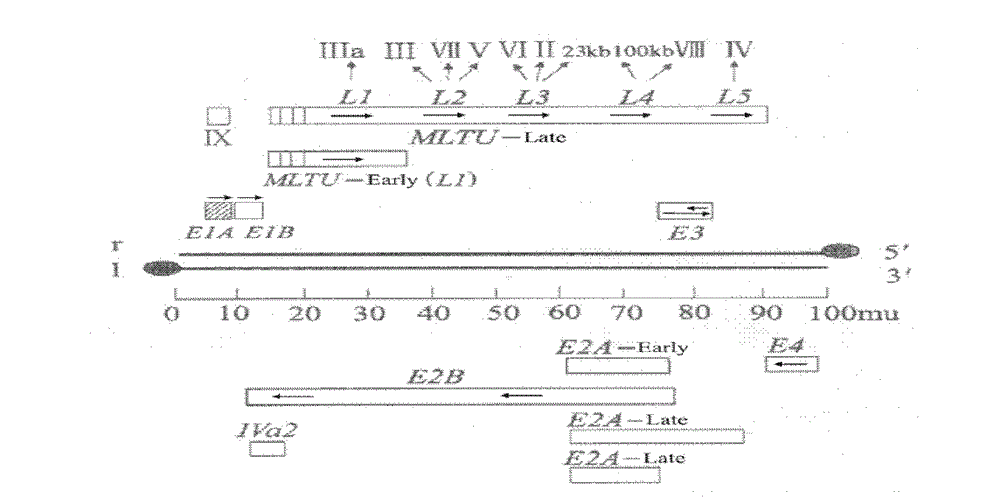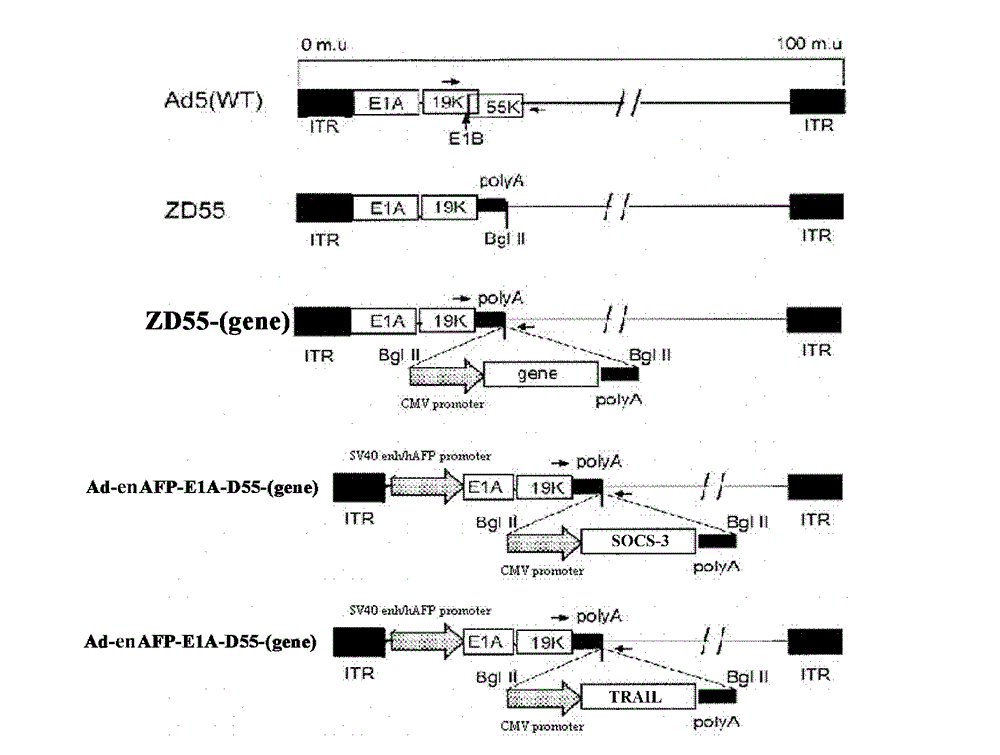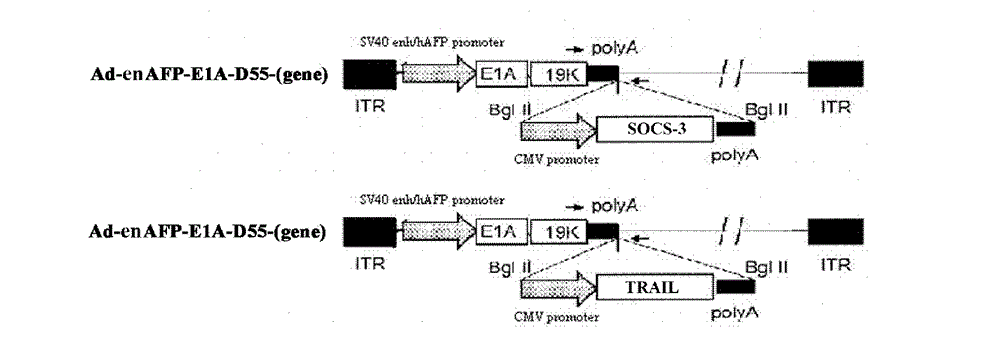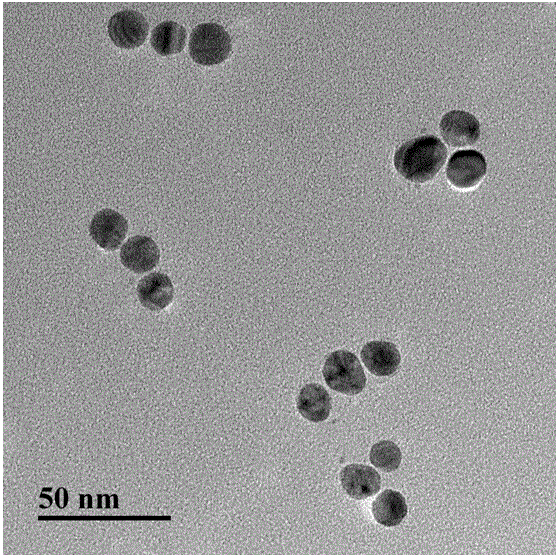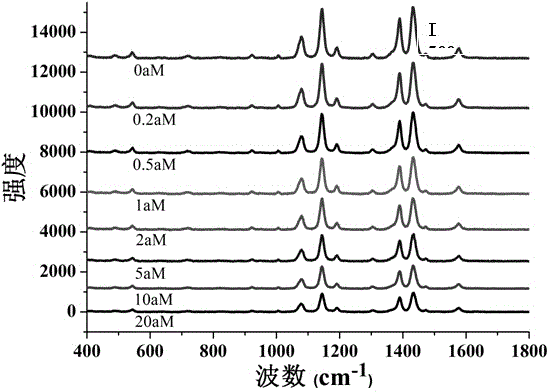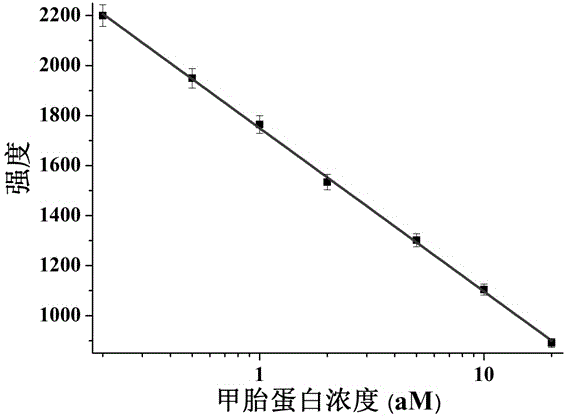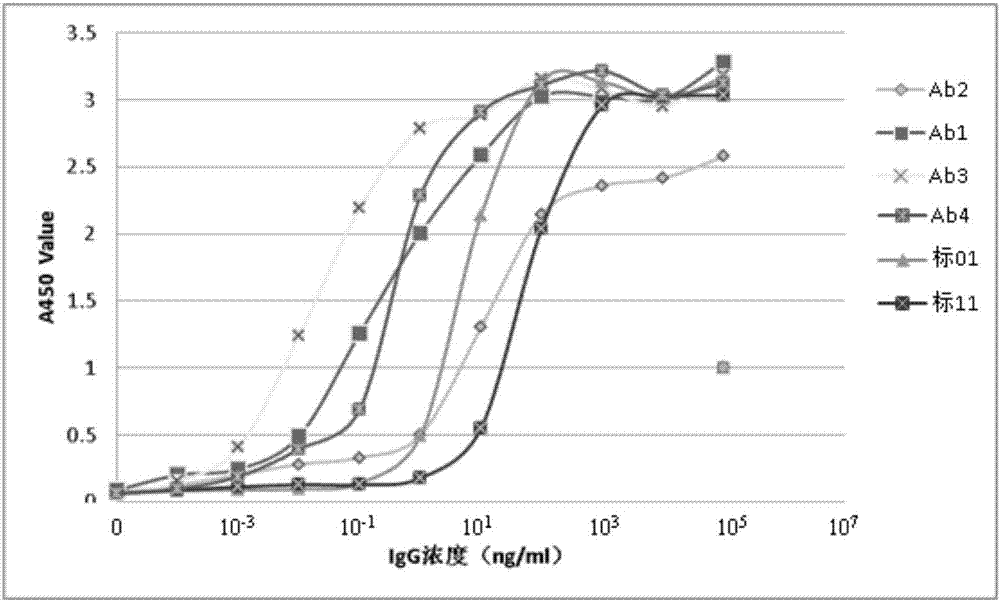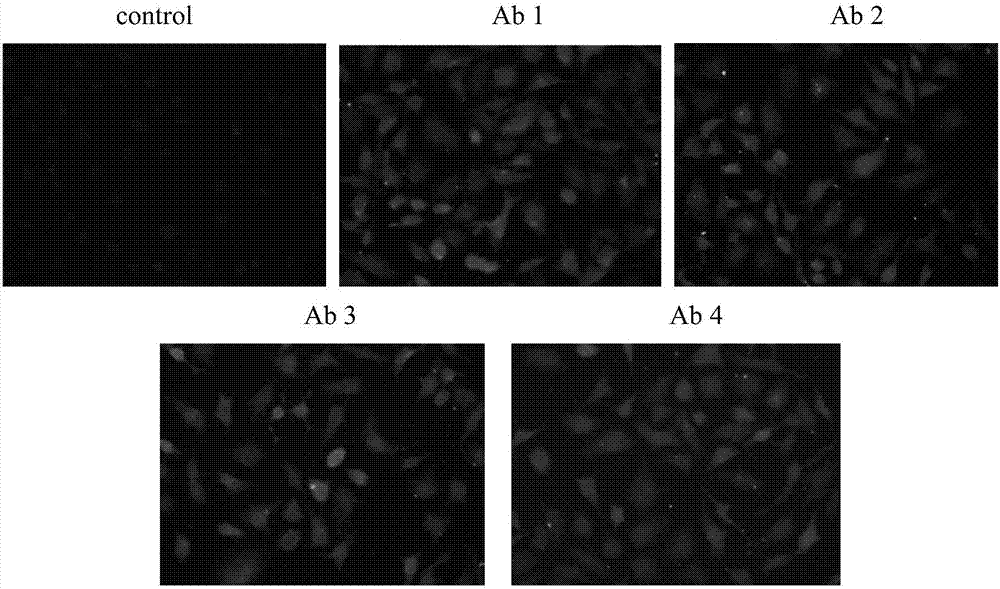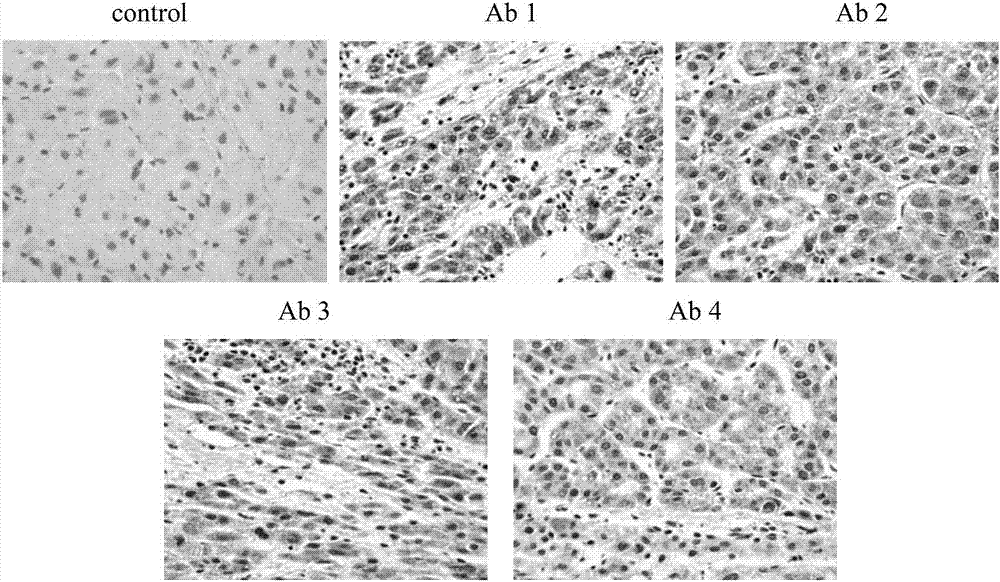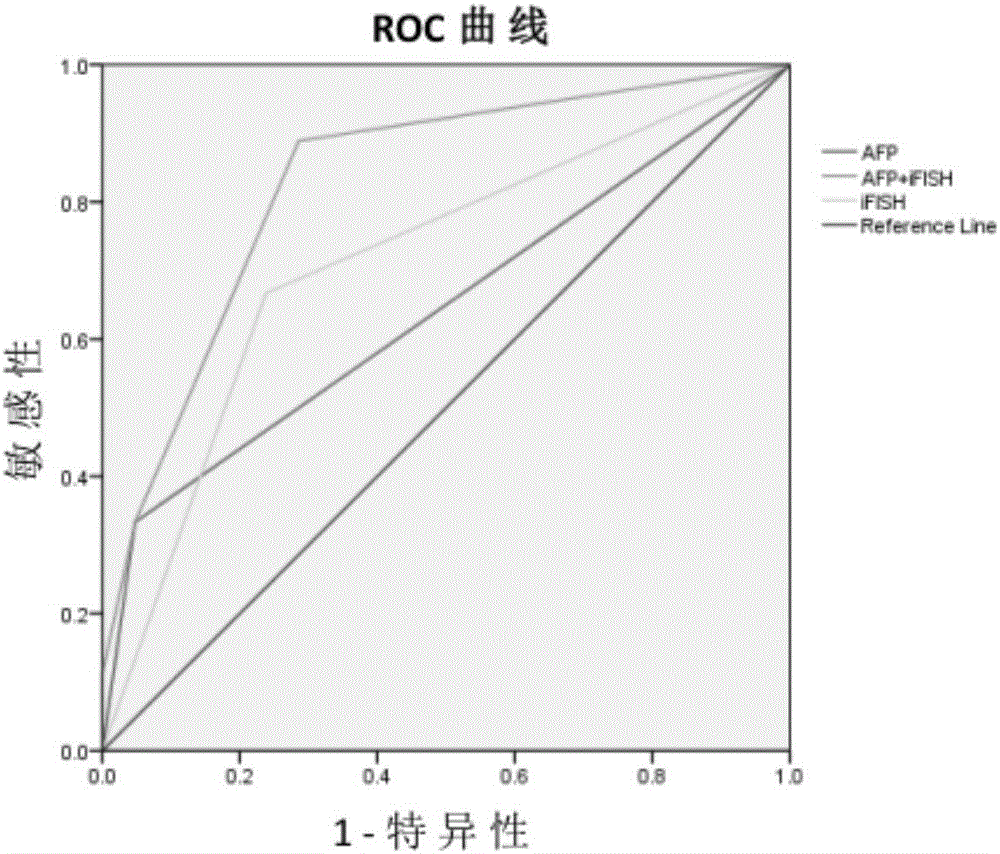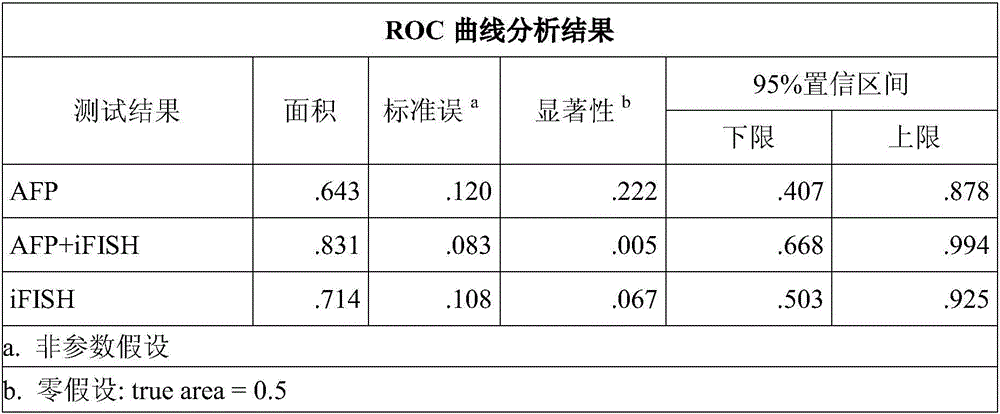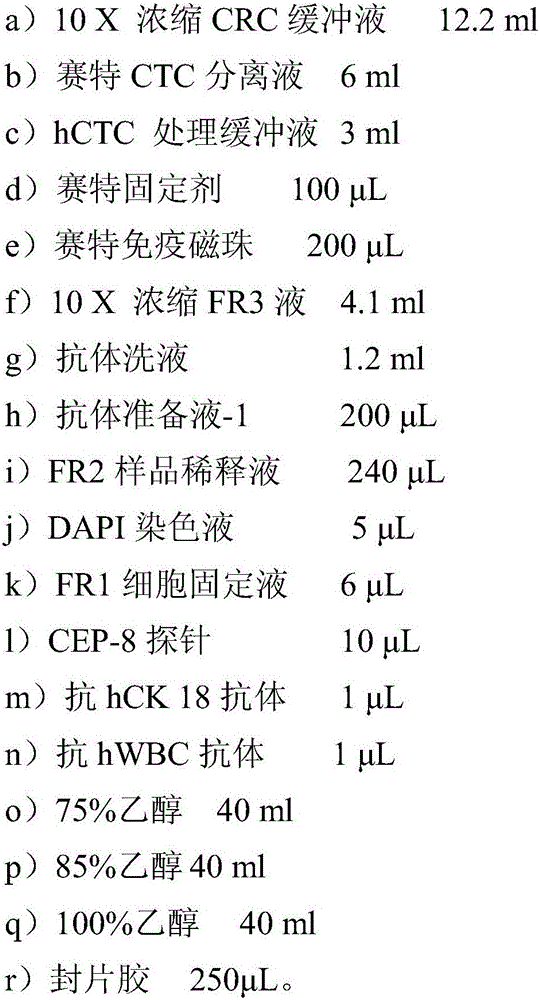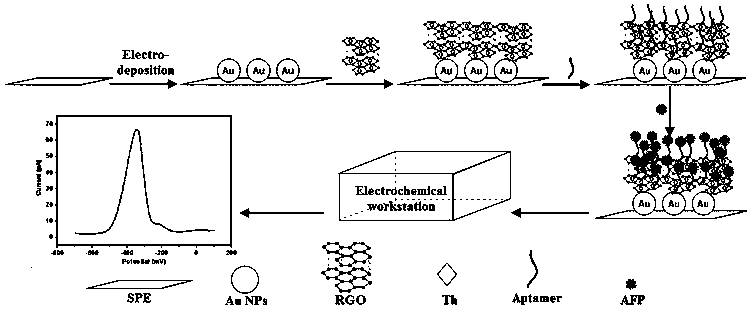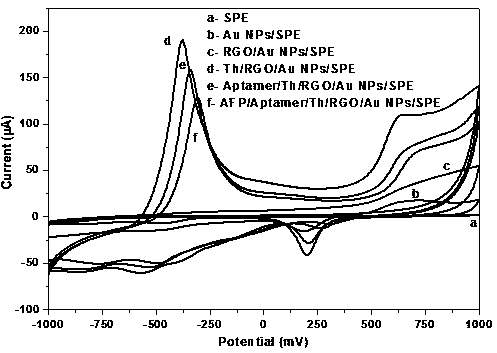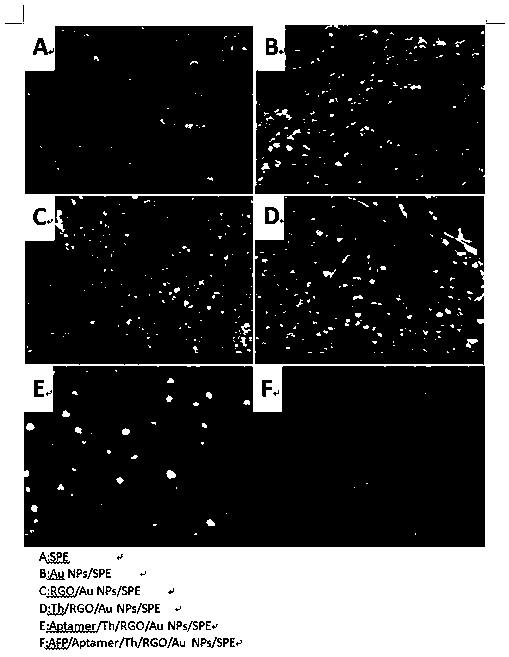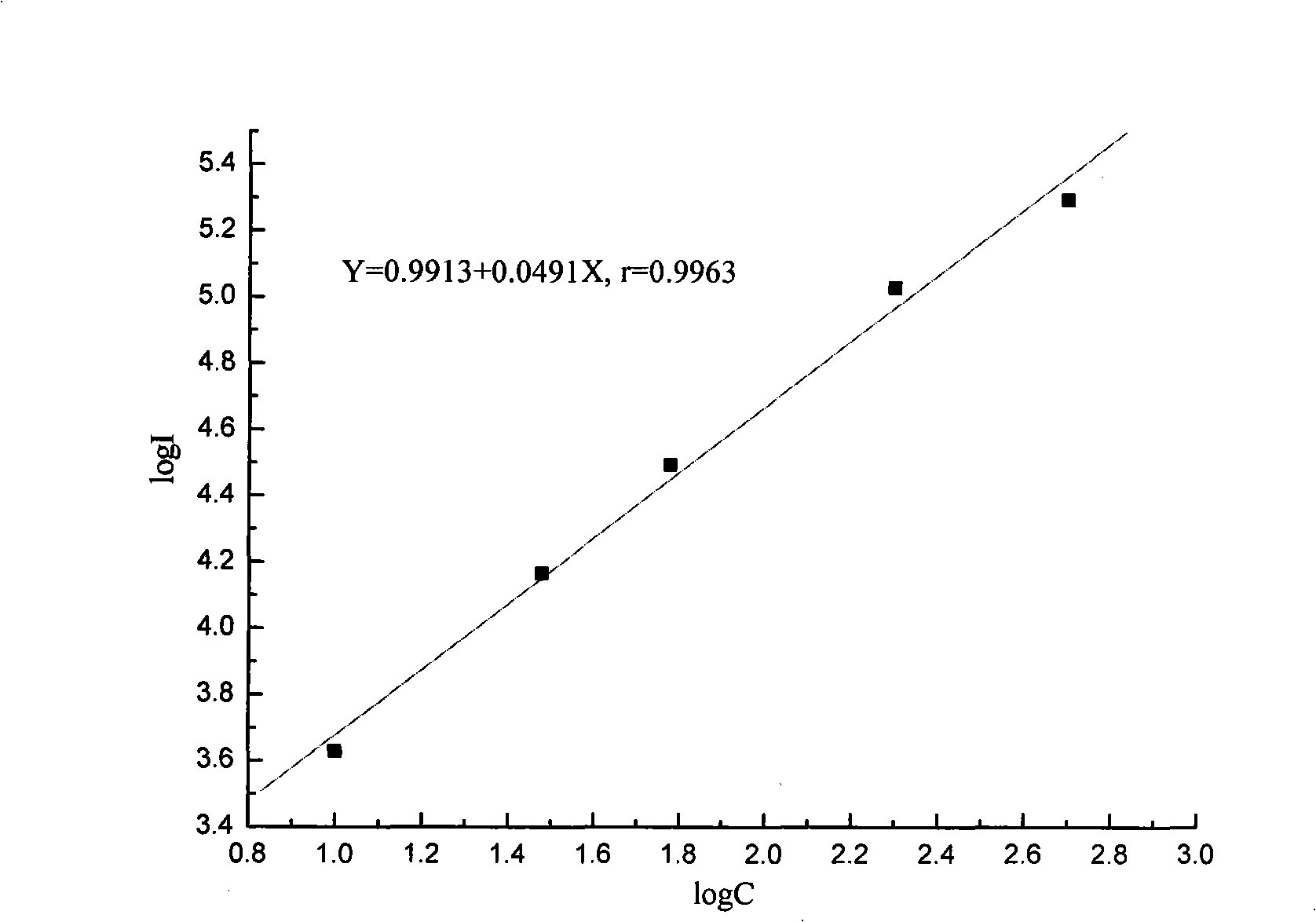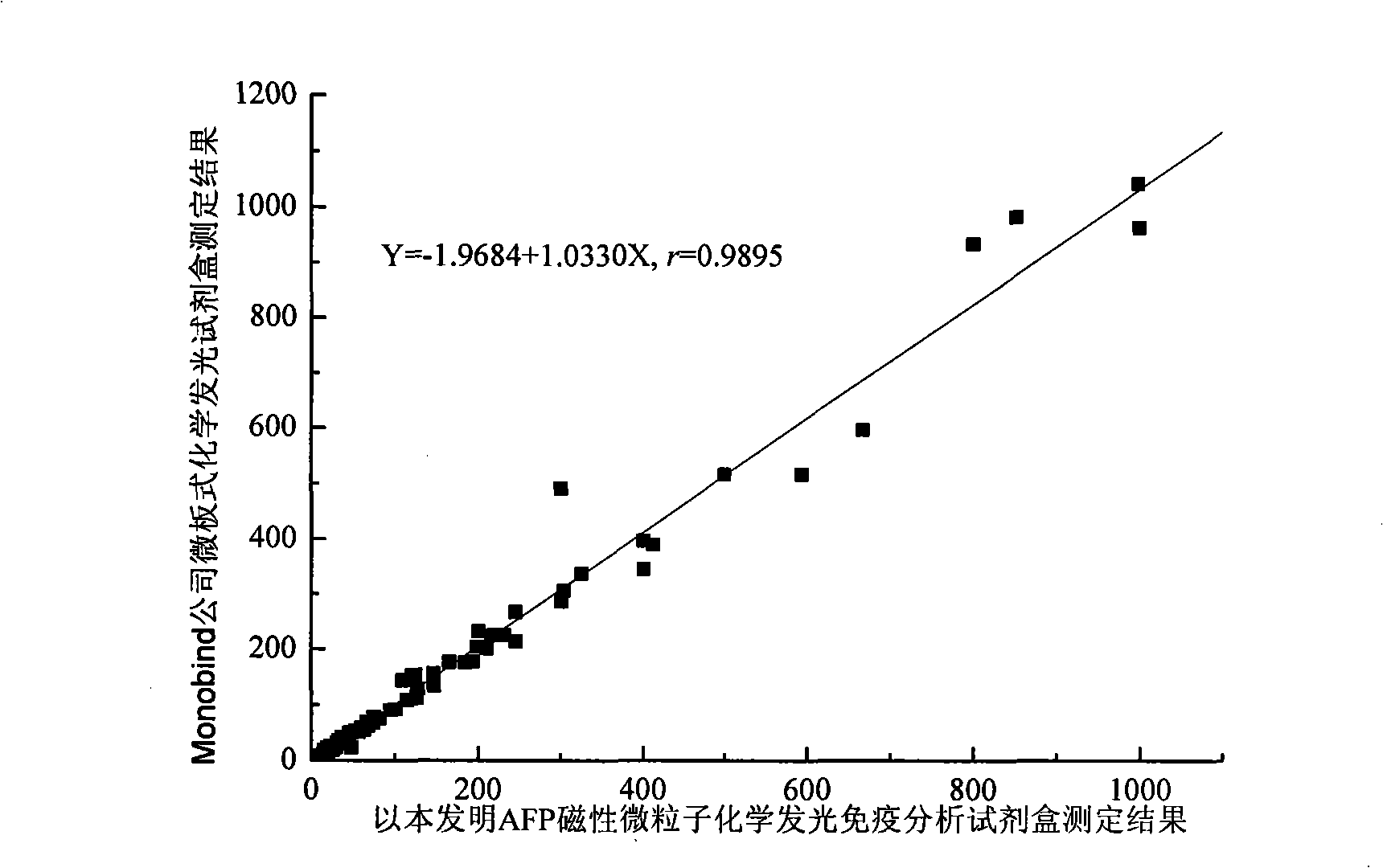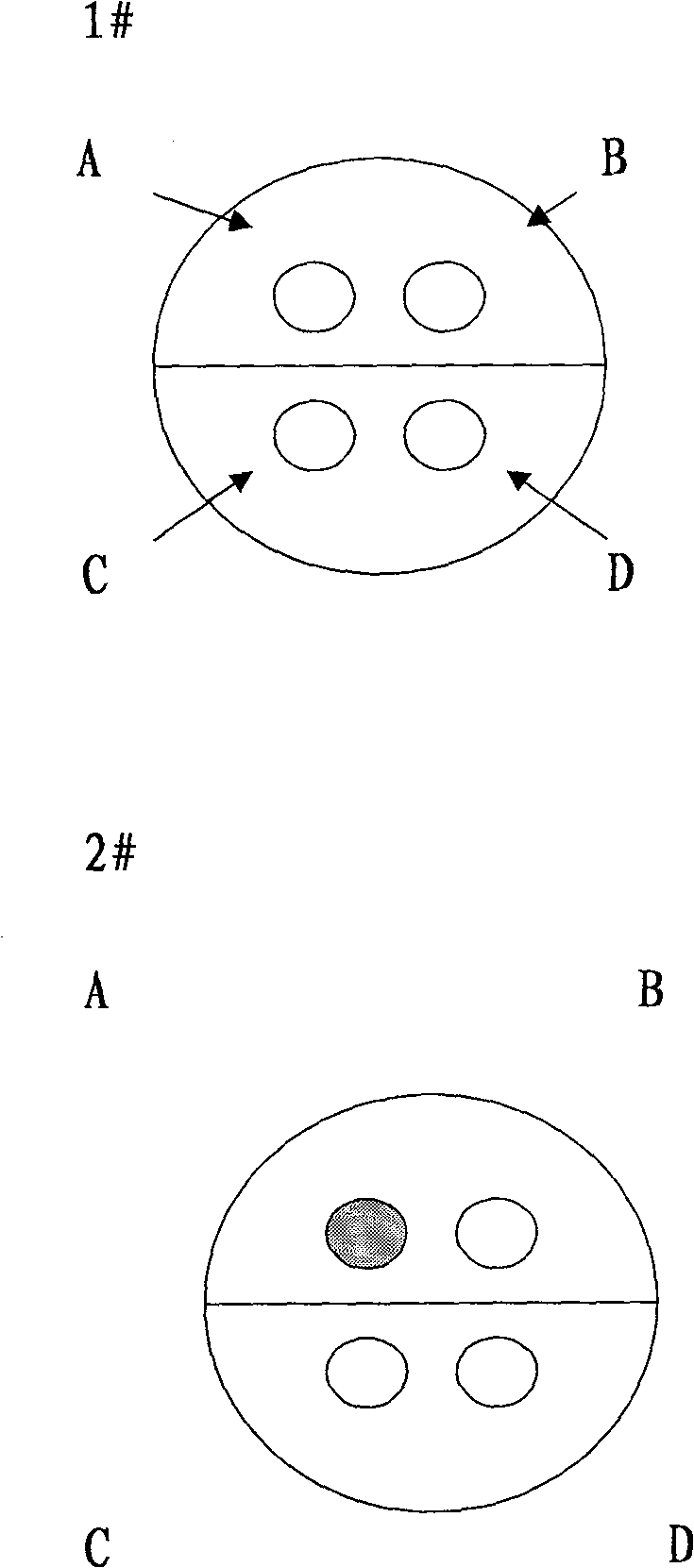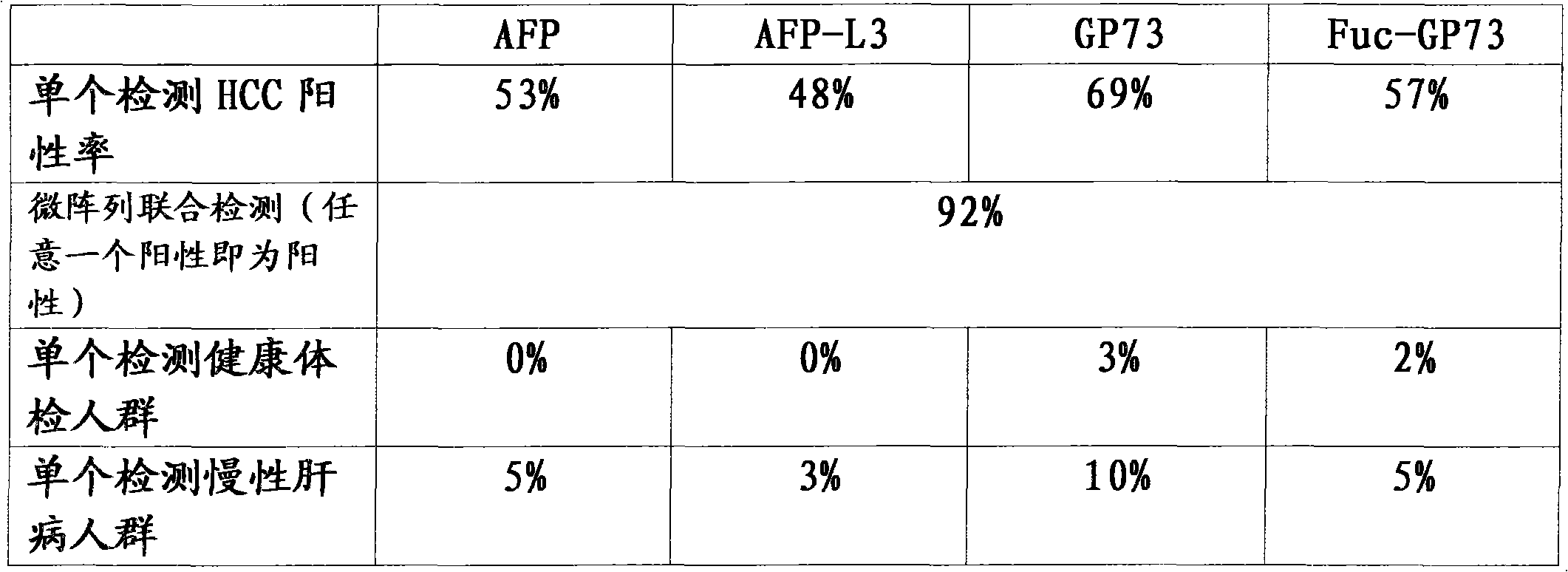Patents
Literature
398 results about "Alpha-fetoprotein" patented technology
Efficacy Topic
Property
Owner
Technical Advancement
Application Domain
Technology Topic
Technology Field Word
Patent Country/Region
Patent Type
Patent Status
Application Year
Inventor
Alpha-fetoprotein (AFP, α-fetoprotein; also sometimes called alpha-1-fetoprotein, alpha-fetoglobulin, or alpha fetal protein) is a protein that in humans is encoded by the AFP gene. The AFP gene is located on the q arm of chromosome 4 (4q25).
Reaction plate and protein chip kit for integrated detection of multiple gynecologic tumor markers
InactiveCN1880960AChemiluminescene/bioluminescenceColor/spectral properties measurementsCarbohydrate antigenGynecologic Tumor
The invention discloses an integral detecting reacting board and protein chip agent box of Carcinoembryonic antigen,CEA, 15-3 CA15-3(Carbohydrate Antigen 15-3,CA15-3), CA 125 (Cancer antigen 125,CA125), Squamous cell carcinoma antigen,SCC, Human papillomavirus antibody,HPVAb, beta-human chorionic gonadotropin, beta-HCG and alpha-fetoprotein,AFP, wherein the reacting hole board contains base and reacting hole on the base; the reacting hole contains 2-384 sample holes, 2-200 standard sample holes; the fixing phase carrier is set on the bottom of each reacting hole, which is covered by seven antigen or antibody molecule arrays with anti-CEA, anti-CA15-3,anti-CA125,anti-SCC,HPV,anti- beta-HCG,anti-AFP.
Owner:汪宁梅
Kit for determination of human alpha-fetoprotein content by latex-enhanced immunoturbidimetry
ActiveCN102662061AAdapt to the requirements of rapid high-throughput screeningStrong specificityBiological testingLatex particleAlpha-fetoprotein
The invention relates to a kit for determination of human alpha-fetoprotein content by a latex-enhanced immunoturbidimetry. The kit provided by the invention comprises an alpha-fetoprotein R1 reagent, an alpha-fetoprotein R2 reagent and an alpha-fetoprotein calibrator, wherein the alpha-fetoprotein R1 reagent comprises one or more electrolytes, a coagulation accelerator, one or more stabilizing agents, one or more surfactants, an antiseptic and a buffer solution; the alpha-fetoprotein R2 reagent comprises latex particles coated by polyclonal antibodies capable of resisting a human alpha-fetoprotein, one or more electrolytes, one or more stabilizing agents, one or more surfactants, an antiseptic and a buffer solution; and the alpha-fetoprotein calibrator comprises an antiseptic, one or more electrolytes, one or more stabilizing agents, alpha-fetoprotein antigens and a buffer solution. The kit has strong specificity and high sensitivity, is homogeneous and stable, can be used fast and conveniently and can be used for various biochemical analyzers.
Owner:BEIJING STRONG BIOTECH INC
Preparation method of electrochemistry immunosensor for determining alpha fetoprotein
ActiveCN102507953AImprove conductivityImprove accuracyBiological testingMaterial electrochemical variablesHorseradish peroxidaseAlpha-fetoprotein
The invention relates to a preparation method of an electrochemistry immunosensor for detecting alpha fetoprotein, in particular to a gold-composite nanometer mesoporous SiO2 composite-based preparation method of the electrochemistry immunosensor for determining the alpha fetoprotein. The immunosensor is employed to provide a method for determining the alpha fetoprotein. The preparation method ischaracterized by comprising the steps of: firstly synthetizing a nanometer mesoporous SiO2-nano-gold composite, fixing horseradish peroxidase and a secondary antibody on the composite to form a complex; fixing a primary antibody by using a thionine-graphene complex, thereby preparing the electrochemistry immunosensor for determining the alpha fetoprotein, wherein the immunosensor is successfully used for the determination of the alpha fetoprotein. The electrochemistry immunosensor disclosed by the invention has the advantages of high accuracy, high sensitivity, stability and repeatability, rapidness and convenience for immunoassay determination, can be used for clinical analysis and provides important basis for early diagnosis of cancers.
Owner:ANHUI DEXINJIA BIOPHARM
Method for screening aptamer specifically bound with alpha-fetoprotein
InactiveCN104131105AStrong interactionIncrease workloadMicrobiological testing/measurementDNA preparationAptamerFetuin b
Owner:ZHONGSHAN HOSPITAL FUDAN UNIV +1
Methods for detecting major adverse cardiovascular and cerebrovascular events
InactiveUS20110045514A1Raise the possibilityMicrobiological testing/measurementDisease diagnosisTissue factorAnalyte
The present teachings relate to a method of assessing the probability of a major adverse cardiovascular or cerebrovascular event in a human. The method can include measuring a concentration, in a blood-based sample of a human, of a set of analytes, for example, alpha-fetoprotein, cancer antigen 125, glutathione S-transferase, and tissue factor. The method also can include determining a MACCE index for the set of analytes and identifying the human as having an increased likelihood of a major adverse cardiovascular or cerebrovascular event if the MACCE index is greater than zero, or a decreased likelihood of a major adverse cardiovascular or cerebrovascular event if the MACCE index is less than or equal to zero.
Owner:BG MEDICINE
Alpha fetoprotein heteroplasmon isolation kit for liver cancer diagnosis, composition reagents of kit and application
The invention relates to an alpha fetoprotein heteroplasmon isolation kit for liver cancer diagnosis, composition reagents of the kit and the application and relates to the field of medical reagents. In a preferable implementation mode, uniform and stable protection liquid is successfully obtained, and stable, high-binding-force and specific lectin coated magnetic beads, uniform and stable lectin-magnetic bead solution and optimal reaction solution and eluent are obtained by optimizing the kit.
Owner:同昕生物技术(北京)有限公司
Reagent for liver cancer monitoring, staging and prognosis risk assessment and method thereof
InactiveCN102565318AImprove accuracyTimely monitoring of disease progressionBiological testingAlpha-fetoproteinCvd risk
The invention discloses a composition for monitoring liver cancer or liver fibrosis risks, which is prepared from the following N-oligosaccharide chains: NA3F, NA2F, NA2FB, NA2G, NA2GF, NGA2F, NGA2FB and NA3. The composition can be used for preparing a reagent which is used for liver cancer early-diagnosis, liver cancer staging detection or prognosis assessment and can also be applied to liver fibrosis early-diagnosis or prognosis assessment. The invention also provides a method for monitoring liver cancer or liver fibrosis risks. According to the method, the sensitivity and stability of liver cancer or liver fibrosis diagnosis can be greatly increased. The method is greatly superior to the current AFP (alpha fetoprotein) detecting technique.
Owner:陈翠英
Preparation method of unlabelled photoelectrochemical alpha fetoprotein immunosensor
InactiveCN104569435AEasy to makeEasy to operateBiological testingMaterial electrochemical variablesChemical synthesisPhysical chemistry
The invention discloses a preparation method of an unlabelled photoelectrochemical alpha fetoprotein immunosensor, and belongs to the fields of novel nano functional materials and biosensors. On the basis of a titanium dioxide nano particle base, a trimetal alloy nano material in a dendrite nanorod form is prepared by a photoelectrochemical synthetic method, so that the prepared unlabelled photoelectrochemical alpha fetoprotein immunosensor for detecting alpha fetal protein is low in cost, high in sensitivity, good in specificity, fast in detection and simple to prepare.
Owner:UNIV OF JINAN
Preparation and application of alpha fetoprotein and carcino-embryonic antigen electrochemiluminescence sensor
InactiveCN103245656AAchieving Simultaneous DetectionHigh sensitivityChemiluminescene/bioluminescenceGraphene nanocompositesElectrochemiluminescence
The invention provides preparation and application of an alpha fetoprotein and carcino-embryonic antigen electrochemiluminescence sensor, and belongs to the technical fields of nano function material, clinical analysis, a bioseneor technology and electrochemistry. The characteristics that platinum nanoparticle @meso-porous silicon @ graphene nanocomposite (PtNPs@m-Si@GS) is strong in conductivity, good in stability, large in specific surface area, good in biocompatibility, strong in catalytic activity and the like are utilized in preparation; an alpha fetoprotein second antibody (anti-alpha fetoprotein (AFP)) and a carcino-embryonic antigen secondary antibody (anti-carcino-embryonicantigen (CEA)) are marked, so as to prepare the marked second antibodies Ru-PtNPs@M-Si@GS / anti-AFP and luminol-PtNPs@M-Si@GS / anti-CEA; and the sensitivity of the sensor is obviously improved. Compared with other single-channel electrode sensors, alpha fetoprotein and carcino-embryonic antigen can be simultaneously detected on a same electrode at one time; the detection efficiency is obviously improved; and the alpha fetoprotein and carcino-embryonic antigen electrochemiluminescence sensor has important scientific significance and application value on clinical early diagnosis of hepatic carcinoma.
Owner:UNIV OF JINAN
Method for the production of fusion proteins in transgenic mammal milk
InactiveUS20060105347A1Short timeEfficient productionFungiPeptide/protein ingredientsHalf-lifeBiocompatibility Testing
Desirable fusion proteins can be produced in and purified from the milk of transgenic animals. The peptides are made as fusion proteins with a suitable fusion partner such as human alpha-fetoprotein. The fusion partner protein acts to promote and increase the half-life of the overall molecule as well as having therapeutic effects on its own. The fusion protein is typically produced through the use of transgenic animals and can be purified away from the now the milk or other bodily fluid of such an animal by an affinity purification method. A particular advantage of producing peptides via this route, in addition to the obvious advantages of high yield and biocompatibility, is that specific post-translational modifications, such as carboxy terminal amidation, can be performed in the mammary gland. Biologically active polypeptides comprising a therapeutically active polypeptide fused to human alpha-fetoprotein fragment or a variant thereof, methods for the preparation thereof, nucleotide sequences encoding such fusion polypeptides, expression cassettes comprising such nucleotide sequences, self-replicating plasmids containing such expression cassettes, and pharmaceutical compositions containing said fusion polypeptides.
Owner:GTC BIOTHERAPEUTICS INC
AFP nanometer antibody A83 based on AFP antigen
ActiveCN105037544AUnique molecular structureSmall molecular weightImmunoglobulins against animals/humansBiological testingAntigenDisease
The invention belongs to the technical field of biology, and relates to a camel source immunity nanometer antibody (single-domain heavy-chain antibody, VHH) specifically bound with AFP and application of the antibody. The amino acid sequence of the antibody is SEQ ID NO.:1. The invention further relates to nucleotides for encoding amino acids. The AFP nanometer antibody can be used as the antibody to be applied to immunological detection of AFP not for disease diagnosis and treatment. Compared with a Scfv antibody and a Fab antibody, the camel source immunity VHH has the higher specificity and affinity, more stable in structure, resistant to acid, base and high temperature, high in detection flexibility and the like, so that the immunity detection stability is greatly improved, and meanwhile the environment resistance is greatly improved.
Owner:NANCHANG DAJIA TECH
Preparing method of electrochemiluminescence immunosensor
InactiveCN101706498AGuaranteed chemical propertiesStop the leakChemiluminescene/bioluminescenceBiological testingAntigenElectrochemiluminescence
The invention relates to a preparing technology of a nano immunological marker, in particular to a preparing method of an electrochemiluminescence immunosensor which has signal amplification function, is decorated by both SiO2 package luminescent material (Ru (bpy) 32 +) and a second antibody (Ab2) and used for low-concentration antigen detection. SiO2 core-shell type nano structure can not only well maintain the chemical property of the content, but also effectively prevent the leakage of the content. Since a plurality of marker molecules can be packaged in an SiO2 bead, the detection sensitivity is greatly improved. The grain diameter of synthesized SiO2@Ru is uniform and the SiO2@Ru has good monodispersity, therefore, identical amount of alpha-fetoprotein antibodies are fixed for each SiO2@Ru nano bead, and the detection repeatability is improved. The linear relation between ECL signal value and AFP concentration is good within the range of 0.01-20ng MmL-1, and the detection lower limit reaches 35pg mL-1.
Owner:SOUTHEAST UNIV
Magnetic immunochromatographic test strip for quantitatively detecting alpha-fetoprotein in blood and preparation method thereof
ActiveCN101566636ARealize single-serving wide-range quantitative detectionClinically convenientBiological testingMedicineQuantitative Result
The invention relates to a magnetic immunochromatographic test strip for quantitatively detecting alpha-fetoprotein in blood and a preparation method thereof. The test strip is assembled by pasting a coated film, magnetic particles combined with an AFP antibody, a sample pad and a water-absorbing pad which are mutually staggered by 2 millimeters in turn on a bottom plate and then covering an upper layer with a transparent plastic sealing film, wherein the coated film is precoated with an AFP-antibody detection line and a quality control line. As the test strip introduces a magnetic immunochromatography technique and a biotin-avidin system into the quantitative detection of AFP in blood, the test strip has the advantages of greatly increasing detection sensitivity, providing accurate quantitative results, reducing the labor intensity of operators and ensuring that clinicians can quickly diagnose patients.
Owner:CHEMCLIN DIAGNOSTICS CO LTD
Methods and kits for the diagnosis of acute coronary syndrome
InactiveUS20070003981A1Quick checkAccurate diagnosisMicrobiological testing/measurementDisease diagnosisComplement 3Factor VII
Provided are methods for the detection and diagnosis of acute coronary syndrome or ACS. The methods are based on the discovery that abnormal levels of selected analytes in sample fluid, typically blood samples, of patients who are at risk are supportive of a diagnosis of ACS. At least two new biomarkers for ACS are thus disclosed, MMP-3 and SGOT. Altogether the concentrations of twelve analytes provide a sensitive and selective picture of the patient's condition, namely, whether the patient is suffering a heart attack. Other important biomarkers for ACS are described, including but not limited to IL-18, Factor VII, ICAM-1, Creatine Kinase-MB, MCP-1, Myoglobin, C Reactive Protein, von Willebrand Factor, TIMP-1, Ferritin, Glutathione S-Transferase, Prostate Specific Antigen (free), IL-3, Tissue Factor, alpha-Fetoprotein, Prostatic Acid Phosphatase, Stem Cell Factor, MIP-1-beta, Carcinoembryonic Antigen, IL-13, TNF-alpha, IgE, Fatty Acid Binding Protein, ENA-78, IL-1-beta, Brain-Derived Nerotrophic Factor, Apolipoprotein A1, Serum Amyloid P, Growth Hormone, Beta-2 microglobulin, Lipoprotein (a), MMP-9, Thyroid Stimulating hormone, alpha-2 Macroglobulin, Complement 3, IL-7, Leptin, and IL-6. Kits containing reagents to assist in the analysis of fluid samples are also described.
Owner:RULES BASED MEDICINE
Methods of isolating bipotent hepatic progenitor cells
A method of obtaining a mixture of cells enriched in hepatic progenitors is developed which comprises methods yielding suspensions of a mixture of cell types, and selecting those cells that are classical MHC class I antigen(s) negative and ICAM-1 antigen positive. The weak or dull expression of nonclassical MHC class I antigen(s) can be used for further enrichment of hepatic progenitors. Furthermore, the progenitors can be selected to have a level of side scatter, a measure of granularity or cytoplasmic droplets, that is higher than that in non-parenchymal cells, such as hemopoietic cells, and lower than that in mature parenchymal cells, such as hepatocytes. Furthermore, the progeny of the isolated progenitors can express alpha-fetoprotein and / or albumin and / or CK19. The hepatic progenitors, so isolated, can grow clonally, that is an entire population of progeny can be derived from one cell. The clones of progenitors have a growth pattern in culture of piled-up aggregates or clusters. These methods of isolating the hepatic progenitors are applicable to any vertebrates including human. The hepatic progenitor cell population is expected to be useful for cell therapies, for bioartificial livers, for gene therapies, for vaccine development, and for myriad toxicological, pharmacological, and pharmaceutical programs and investigations.
Owner:KUBOTA HIROSHI +1
Immunochromatography rapid kit and production method thereof
ActiveCN102116770AOvercome the problems of low precision and too large coefficient of variation CV%Overcoming extremely important problems in industrializationBiological testingCelluloseDisease
The invention relates to a production method of immunochromatography test paper, and alpha-fetoprotein fast quantitative immunochromatography test paper and C reactive protein fast quantitative immunochromatography test paper both prepared by using the production method. The immunochromatography test paper uses UCP (Up-Converting Phosphor) as biomarker. The structure consists mainly of: a sample cushion, a binding cushion or a bonder dilution cushion, a cellulose nitrate film, a water absorption cushion and a plastic card. The invention relates to the method for the industrial production of such up-converting immunochromatography test paper and the using method thereof. By using the up-converting immunochromatography test paper, the content of a detected material can be determined rapidly, conveniently and quantitatively, and support can be offered to the prevention, diagnosis and treatment of disease accurately.
Owner:BEIJING HOTGEN BIOTECH CO LTD +1
Method for preparing electrochemiluminescence immunosensor for alpha fetoprotein based on Au-g-C3N4 nanocomposite and application
InactiveCN105044083ALuminous signal enhancementProduce moreChemiluminescene/bioluminescenceBiological testingAntigenElectrochemiluminescence
The invention relates to the technical field of electrochemiluminescence immunosensors, in particular to a method for preparing an electrochemiluminescence immunosensor for alpha fetoprotein based on an Au-g-C3N4 nanocomposite and application. A dispensing method is adopted to modify the Au-g-C3N4 nanocomposite to the surface of an electrode to serve as a luminescent material and an antibody capturing substrate, and the excellent electrical conductivity and catalytic performances of gold nanoparticles can effectively improve light-emitting signals of the sensor. Based on good specificity between antigen-antibodies, the sensor is used for detecting alpha fetoproteins, and the alpha fetoproteins are detected according to the difference of the electrochemiluminescence strength of the alpha fetoproteins with different concentrations.
Owner:UNIV OF JINAN
Preparation method of graphene oxide/ alpha fetoprotein aptamer electrochemical sensor
ActiveCN107144617ALarge specific surface areaImprove mechanical propertiesMaterial analysis by electric/magnetic meansProtein targetSignal on
The invention discloses a preparation method of a graphene oxide / alpha fetoprotein aptamer electrochemical sensor. The preparation method comprises the following steps: taking carboxylated graphene oxide as a substrate, grafting an aminated alpha fetoprotein aptamer chain on the substrate through carbodiimide reaction, then modifying the obtained compound on an electrode, closing a non-specific adsorption site on the modified electrode with bovine serum albumin, so that a graphene oxide / alpha fetoprotein aptamer electrochemical sensing interface is formed; and taking the modified electrode as a working electrode, and investigating variation, caused by alpha fetoprotein solution with different concentrations, of an impedance signal on the sensing interface by adopting an impedance method. Compared with an existing alpha fetoprotein detection method, the preparation method has the advantages that an alpha fetoprotein aptamer is adopted for analyzing a target protein, harms such as redundant multiple labeling operation, radiation and pollution do not exist, and the sensor has the advantages of high sensitivity, good selectivity, simplicity in preparation, high analysis speed, mild reaction conditions, low preparation cost and the like.
Owner:青岛远诚创智科技有限公司
Alpha fetal protein (AFP) detection method based on fluorescent nano luminous and magnetic nano material
The invention relates to a method for determining the content of AFP in serum by using CdTe quantum dots and Fe3O4-Dextran nano particles, characterized by comprising the steps of (a) preparing Fe3O4-Dextran-first antibody complex; (b) preparing CdTe-second antibody complex; (c) drawing 'fluorescence intensity-AFP concentration' standard work curve, and calculating work equation; and (d) measuring the fluorescence intensity value for the work equation to determine the AFP content of the patents with liver cancer. The method is simple and has high sensitivity, can easily detect the disease for the early cancer patients so as to treat the patients in time, and furthermore, the method opens up a road for the clinic detection of liver cancer.
Owner:DONGHUA UNIV
Preparation method of liquid phase protein chip
InactiveCN101144815AEarly detectionEarly treatmentMaterial analysisHigh risk populationsFluorescence
The present invention relates to the biologic technology field, and discloses a liquid phase albumen chip and the preparation and the usage method thereof which can simultaneously test human serum carcinoma embryonic antigen (CEA), Alpha fetoprotein (AFP), and hepatitis B surface antigen (HBsAg). The present invention couples the specificity antibody of CEA, AFP, and HBsAg on different fluorescence micro-spheres, and uses the test antibody marked by biotin or phycoerythrin to determine the nature quickly and quantitatively analyze the above three indexes with the double antibody sandwich method. The present invention uses the filtering membrane board when testing, and washes the board 3 times after each reaction is finished to increase the signal and improve the sensitivity. The present invention has high sensitivity, strong specificity, stable result, excellent repeatability, and simple operation; 1 micro liter serum sample can test three indexed simultaneously. The present invention is applicable to the health test and the general examination as well as the clinic test of the high risk population, and can facilitate the early diagnosis and the early treatment of the knub.
Owner:GUANGZHOU DARUI BIOTECH
AFP (Alpha-Fetoprotein) testing kit (time-resolved fluoroimmunoassay) for prenatal screening and preparation method thereof
ActiveCN101819206AImprove accuracyHigh sensitivityBiological testingBlood specimenPrenatal screening
The invention relates to an alpha-fetoprotein testing kit (time-resolved fluoroimmunoassay) applicable for mid-pregnancy prenatal screening and a preparation method thereof. The kit comprises the following main components of an experimental buffer solution, a concentrated washing solution, an enhancement solution, a reaction plate, a standard product and a quality control product of filter paper dried blood spots and a europium marker. The method for preparing the kit according to the invention comprises the following steps of: 1. preparing the experimental buffer solution, the concentrated washing solution and the enhancement solution; 2. coating the reaction plate; 3. preparing the standard product and the quality control product; 4. preparing the europium marker; 5. separately loading; 6. sticking labels; and 7. assembling into a finished product. The invention has the characteristics that the accuracy and the sensitivity of a detected result are high, the stability is good, and a detecting method is economical, convenient and safe and has no traumatic property, has high automation degree, and the like. A filter paper dried blood spot technology is applied to prenatal screening work, which is beneficial to blood specimen collection, storage and transportation and ensures the experimental reliability.
Owner:GUANGZHOU FENGHUA BIOENG
High-specificity and high-sensitivity monoclonal antibody for detecting human alpha-fetoprotein as well as reagent kit and application
ActiveCN107022029ARealize quantitative detectionStrong specificityImmunoglobulins against animals/humansBiological material analysisSerum igeAlpha-fetoprotein
The invention discloses a high-specificity and high-sensitivity monoclonal antibody for detecting human alpha-fetoprotein as well as a reagent kit and application. Three monoclonal antibodies containing monoclonal antibodies Ab1 to Ab3 can be used for specifically identifying human-derived natural hAFP (human Alpha-fetoprotein) in human hepatocellular carcinoma cells and hepatocellular carcinoma tissues and have very good specificity. When double-antibody sandwich ELISA (Enzyme-linked Immunosorbent Assay) detection is carried out on a sample by utilizing an antibody matched combination Ab1+Ab3 / HRP-Ab2, a linear detection range is 5ng / ml to 250ng / ml, the lowest detection limit is 2ng / ml and the upper detection limit is 400ng / ml; the linear detection range and the lowest detection limit are better than a linear range of 5ng / ml to 200ng / ml and the upper detection limit of 5ng / ml of an imported kit; a clinical sample detection result shows that a detection method has the positive blood serum accuracy of 100 percent and the negative blood serum accuracy of 100 percent. Therefore, an established double-antibody sandwich ELISA method has a larger linear range and better popularization and application value.
Owner:广州普锐生物科技有限公司
Liver cancer-specific gene-virus and application thereof
InactiveCN102796709AImprove securityGenetic material ingredientsViruses/bacteriophagesOncolytic adenovirusNormal cell
The invention discloses a liver cancer-specific gene-virus and application thereof. The virus is an oncolytic virus; an early gene E1 of the virus is divided into E1A and E1B; a promoter of the E1A is replaced by a liver cancer-specific promoter, and is preferably replaced by a liver cancer-specific alpha fetoprotein promoter; and an anticancer gene is carried by the virus. The anticancer gene is SOCS3, HCCS-1, TSLC-1, 1L-24, MnSOD or TRAIL. The anticancer gene is preferably IL-24. The liver cancer-specific gene-virus is used for specific medicines for treating liver cancer, has a relatively high targeting anti-hepatoma effect, basically does not affect normal cells, and also has a small effect on most of other cancer cells.
Owner:SHANGHAI INST OF BIOLOGICAL SCI CHINESE ACAD OF SCI
Method for super-sensitively detecting alpha fetalprotein based on surface enhanced raman scattering effect of silver nanoparticle tripolymer
ActiveCN104931478AStrong plasmon resonanceLow detection limitRaman scatteringModified dnaAlpha-fetoprotein
The invention provides a method for super-sensitively detecting alpha fetalprotein based on the surface enhanced raman scattering effect of a silver nanoparticle tripolymer and belongs to the technical field of analytical chemistry. The method comprises the following steps: synthetizing silver nanoparticles with the grain sizes of 15 nm, modifying DNA by the silver nanoparticles, assembling the silver nanoparticle tripolymer, and conducting TEM characterizing and raman signal testing on the silver nanoparticle tripolymer. The silver nanoparticle tripolymer is assembled for the first time, and has a strong raman signal, the raman signal changes after the alpha fetoprotein is added, and the quick super-sensitive detection of the alpha fetalprotein is achieved by the change of the raman signal.
Owner:JIANGNAN UNIV
Monoclonal antibody for detecting human alpha-fetoprotein, kit and application
ActiveCN107022030ARealize quantitative detectionStrong specificityImmunoglobulins against animals/humansBiological material analysisSerum igeEpitope
The invention discloses a monoclonal antibody for detecting human alpha-fetoprotein, a kit and application. Three monoclonal antibodies including monoclonal antibodies Ab1, Ab3 and Ab4 can be used for specifically identifying human-derived natural hAFP (human Alpha-fetoprotein) in human hepatocellular carcinoma cells and hepatocellular carcinoma tissues and have very good specificity. The invention discloses a mouse-derived monoclonal antibody capable of being specifically combined with the human alpha-fetoprotein; the antibody can be combined with different epitopes of the human alpha-fetoprotein to form a double-antibody sandwich mode, so that quantitative detection of the alpha-fetoprotein in human blood serum is realized; the monoclonal antibody has a certain effect on prenatal diagnosis and early diagnosis of hepatocellular carcinoma and has very good popularization and application value.
Owner:广东谷盈生物科技产业研究院有限公司
Kit for jointly detecting and evaluating liver cancer transfer and recurrence risks after orthotopic liver transplantation
ActiveCN106370867AInhibit progressImproved prognosisMicrobiological testing/measurementDisease diagnosisSplit liver transplantationCirculating cancer cell
The invention relates to the field of medical biological detection, in particular to a detection reagent or a kit for evaluating liver cancer transfer and recurrence risks after orthotopic liver transplantation through combination of AFP (alpha fetoprotein) detection and iFISH-CTC (circulating tumor cells) detection, and a detection method of the detection reagent or the kit. The liver cancer transfer and recurrence risks after the orthotopic liver transplantation are evaluated through detection of the content of AFP and the number of CTC, so that a new measure is provided for detection of liver cancer transfer and recurrence after the orthotopic liver transplantation so as to start clinical intervention as early as possible, worsening of patients' conditions is prevented, and prognosis of patients is improved.
Owner:RENJI HOSPITAL AFFILIATED TO SHANGHAI JIAO TONG UNIV SCHOOL OF MEDICINE
Preparation method and application of immunosensor established based on manganese dioxide loaded silver nanoparticle multiwalled carbon nanotube
InactiveCN104569427ALarge specific surface areaImprove conductivityBiological testingImmune profilingMultiwalled carbon
The invention belongs to the technical field of nano functional materials, immunoassay and biosensing, and provides a preparation method and application of an immunosensor established based on a manganese dioxide loaded silver nanoparticle multiwalled carbon nanotube. The electrochemical immunosensor which is prepared by taking the manganese dioxide loaded silver nanoparticle multiwalled carbon nanotube AgNPS@MnO2@MWCNTs as a detection antibody marker has the advantages of high specificity, high sensitivity, low detection limit and the like, and has significant scientific meanings and application values in detection on carcino-embryonic antigen CEA and alpha fetoprotein AFP.
Owner:SHANDONG UNIV OF TECH
Method used for detecting alpha fetoprotein based on graphene, thionine, and nucleic acid aptamer
ActiveCN107677719ALow costImprove performanceMaterial electrochemical variablesPeak valueDifferential pulse voltammetry
The invention discloses a method used for detecting alpha fetoprotein based on graphene, thionine, and a nucleic acid aptamer. According to the method, electrodeposition technology is adopted for deposition of nano-gold on the surface of a screen-printed electrode, electrostatic adsorption is adopted for absorption of graphene and thionine which drop on an electrode surface onto the surface of thescreen-printed electrode, thionine is taken as a bridge molecule for capturing of the nucleic acid aptamer onto the surface of a modified electrode. A nanometer aptamer biosensor can be constructed based on the extremely large specific surface area and signal amplification effect of graphene, the high loading capacity of thionine on the aptamer, and the specific recognition effect of the aptameron alpha fetoprotein. Peak value current is measured through differential pulse voltammetry, and the relation curve of the current to the alpha fetoprotein concentration is drawn, so that detection onalpha fetoprotein is short in time, low in cost, and high in the specificity.
Owner:GUILIN UNIV OF ELECTRONIC TECH
Alpha-fetoprotein magnetic particle chemoluminescence immunoassay kit and method for preparing same
InactiveCN101514991ASensitive highHighly specific detectionChemiluminescene/bioluminescenceBiological testingBiotin-streptavidin complexMicroparticle
The invention relates to the medical field of immunoassay, and in particular provides an AFP magnetic particle chemoluminescence immunoassay kit and a method for preparing the same. The kit comprises: 1) an AFP calibrator; 2) a magnetic particle solution enveloped by a fluorescein isothiocyanate (FITC) resisting monoclone antibody; 3) a mixed solution of a biotin-marked AFP monoclone antibody and an FITC-marked AFP monoclone antibody; 4) a horseradish peroxidase marked streptavidin; 5) a chemoluminescence substrate liquid; and 6) a reaction tube. Furthermore, the method for preparing the kit comprises the following steps: 1) preparing the calibrator by using an AFP pure product; 2) preparing the magnetic particle solution enveloped by the FITC antibody; 3) preparing the mixed solution of the biotin-marked AFP monoclone antibody and the FITC-marked AFP monoclone antibody; 4) marking the streptavidin with the horseradish peroxidase; 5) preparing the chemoluminescence substrate liquid; 6) packaging the calibrator, the magnetic particle solution, the mixed solution, the enzyme marked object, the chemoluminescence substrate liquid and the sub packaging tube; and 7) assembling the components into a finished product. The kit has the advantages of simplicity, fastness, flexibility, stability, and the like.
Owner:北京科美东雅生物技术有限公司
Liver cancer multi-marker micro-array kit as well as preparation method and application thereof
The invention provides a protein micro-array kit for early diagnosis of liver caner as well as a preparation method and an application thereof. The kit can be used for monitoring of development level of chronic hepatitis and prognosis, as well as early diagnosis of the liver cancer. The kit can be used for monitoring expression levels of alpha-fetoprotein, alpha-fetoprotein variant, Golgi protein GP73 and Golgi protein GP73 variants, and determining the prognosis level of a patient and the probability of causing cirrhosis and the liver cancer, thereby providing a direct support for the prevention, diagnosis and treatment of the liver cancer and the hepatitis.
Owner:THE FIFTH MEDICAL CENT OF CHINESE PLA GENERAL HOSPITAL
Features
- R&D
- Intellectual Property
- Life Sciences
- Materials
- Tech Scout
Why Patsnap Eureka
- Unparalleled Data Quality
- Higher Quality Content
- 60% Fewer Hallucinations
Social media
Patsnap Eureka Blog
Learn More Browse by: Latest US Patents, China's latest patents, Technical Efficacy Thesaurus, Application Domain, Technology Topic, Popular Technical Reports.
© 2025 PatSnap. All rights reserved.Legal|Privacy policy|Modern Slavery Act Transparency Statement|Sitemap|About US| Contact US: help@patsnap.com
